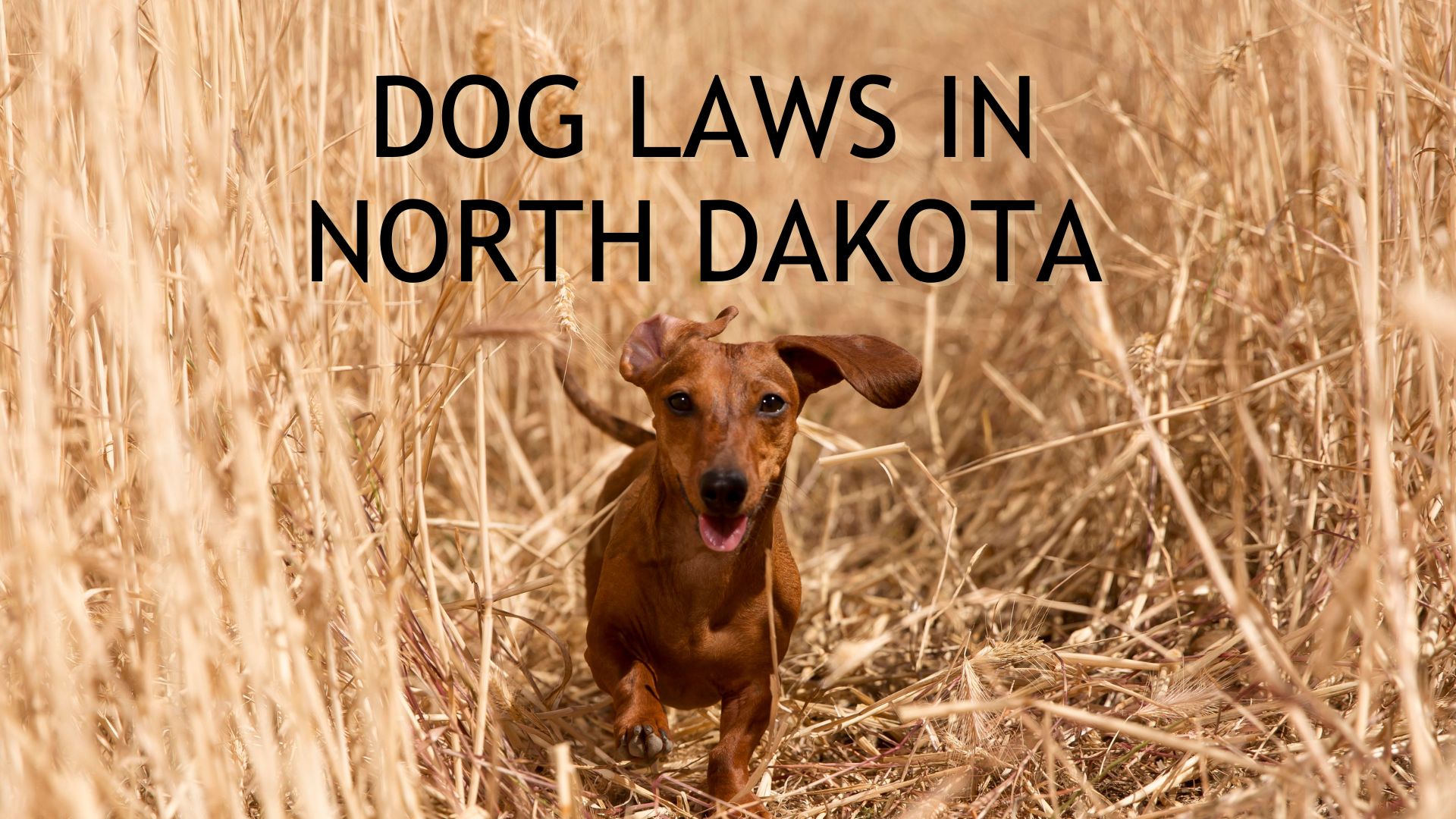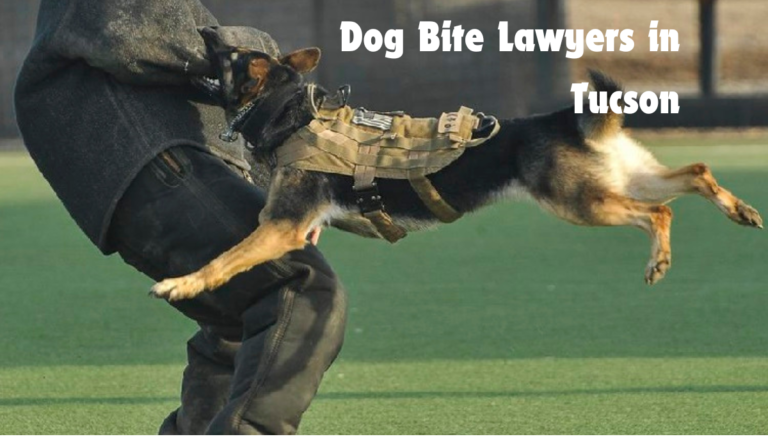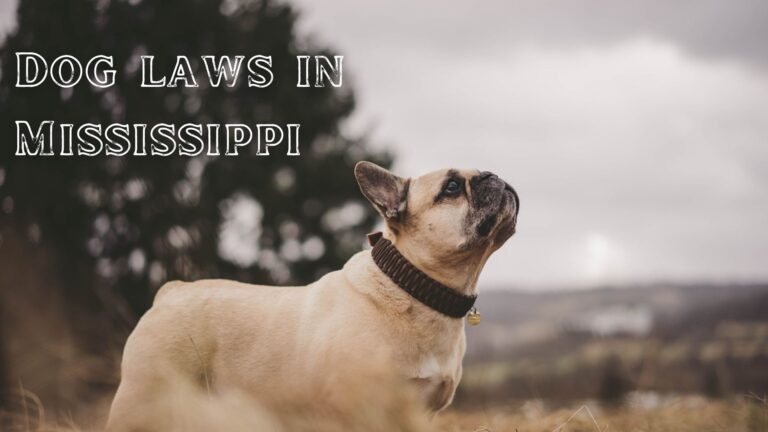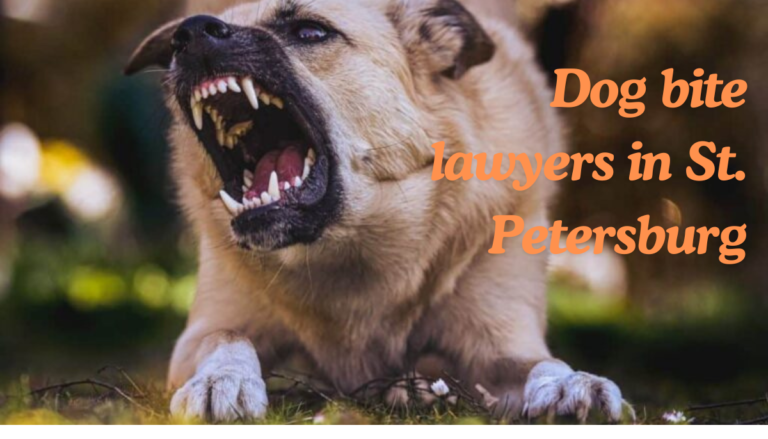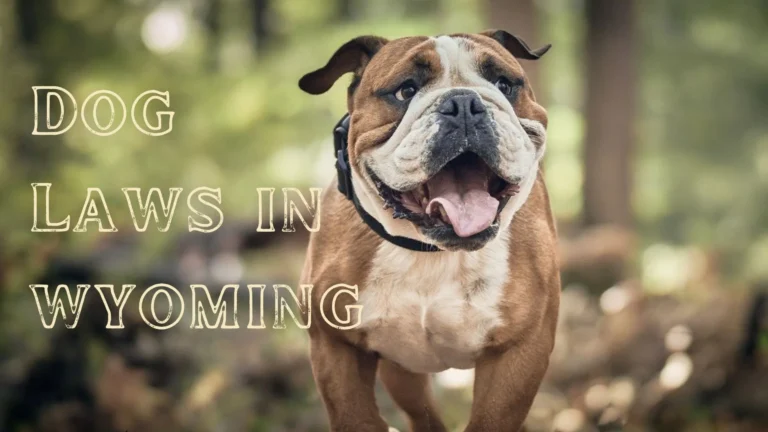Dog Laws in North Dakota
Owning a dog in North Dakota brings immense joy and companionship. But with furry friends come responsibilities, and understanding the legal landscape surrounding canine care is crucial. Dog laws encompass various areas, ensuring the well-being of your pet, protecting the public, and fostering a harmonious environment for everyone.
By familiarizing yourself with these areas of dog law, you can ensure a happy and fulfilling life for your dog while upholding your responsibilities as a pet parent.
Table of Contents
Dog Bite Laws in North Dakota
North Dakota, known for its vast plains, friendly communities, and love for animals, prioritizes the safety of both humans and canine companions. While there isn’t a specific dog bite statute on the books, established legal principles and a key court case set the standard for dog bite liability in the state. This guide explores dog bite laws in North Dakota, empowering you to be a responsible dog owner and understand your rights if a dog bite occurs.
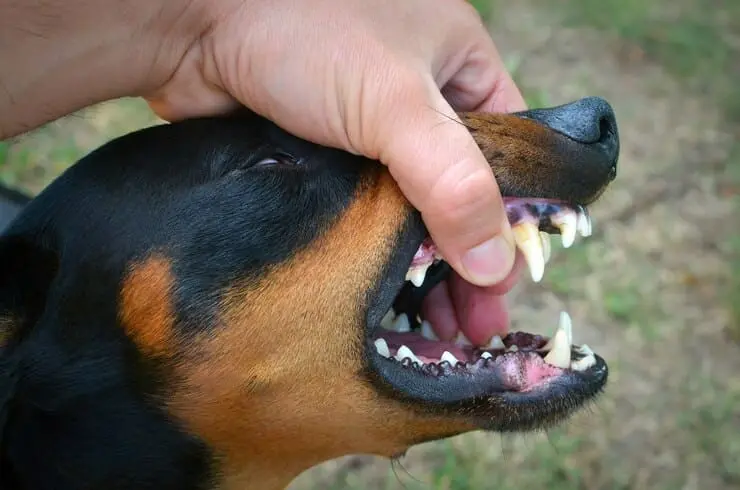
The Absence of a Specific Dog Bite Statute
Unlike many states, North Dakota doesn’t have a specific law solely addressing dog bites. However, the state’s general negligence laws and a landmark court case, Sendelbach v. Grad (1976), establish the legal framework for dog bite liability.
“One-Bite Rule” in North Dakota
North Dakota courts often apply the “one-bite rule” when considering dog bite liability. This common law principle suggests:
- First Bite: In the absence of prior aggressive behavior, a dog owner might not be held liable for the first bite. The assumption is the owner wasn’t aware of the dog’s dangerous propensities.
- Subsequent Bites: After a first bite incident, the owner is presumed to be aware of the dog’s dangerous tendencies. Any future bites could result in the owner being held liable for negligence in not taking steps to prevent the attack.
Key Factors Determining Dog Bite Liability in North Dakota
While the “one-bite rule” offers a starting point, several factors influence dog bite liability in North Dakota:
- Knowledge of Vicious Propensity: The key element is whether the dog owner knew or should have known about the dog’s vicious propensities. This could involve prior bite incidents, growling, or aggressive behavior towards people.
- Negligence of the Dog Owner: Even with knowledge of potential aggression, the owner’s actions (or lack thereof) play a role. Did they take reasonable precautions like leashing the dog, using a muzzle, or posting warning signs?
- Severity of the Bite: The seriousness of the injury can influence the extent of liability. More severe injuries might lead to higher compensation awards for the victim.
- Provocation by the Victim: If the victim provoked the dog (teasing, trespassing), their own actions might reduce the owner’s liability or even eliminate it entirely.
The Importance of Evidence in Dog Bite Cases
In a dog bite case, evidence plays a crucial role:
- Bite Records: Veterinarian records documenting prior aggressive behavior could strengthen the case against the dog owner.
- Witness Statements: Witnesses who observed the dog’s behavior before or during the bite can provide valuable evidence.
- Animal Control Reports: Reports from animal control regarding prior complaints about the dog can be helpful.
Responsible Dog Ownership
While legal aspects are important, the best approach is to prevent dog bites altogether:
- Proper Training and Socialization: Invest in positive reinforcement training and socialization for your dog from a young age.
- Leash Laws and Public Safety: Always adhere to leash laws and keep your dog leashed in public spaces.
- Responsible Supervision: Never leave your dog unattended, especially around children or unfamiliar people.
- Recognizing Warning Signs: Be mindful of your dog’s body language and potential triggers for aggressive behavior.
What to Do After a Dog Bite
If you’re bitten by a dog:
- Seek Medical Attention: Your health is the top priority. Seek immediate medical attention for any injuries sustained.
- Report the Incident: Report the dog bite to animal control so they can investigate and potentially quarantine the dog.
- Gather Evidence: If possible, document the bite with photos or witness statements.
- Consult an Attorney: An attorney specializing in dog bite cases can advise you on your legal rights and potential compensation options.
Additional Considerations
- Homeowner’s Insurance: Most homeowner’s insurance policies cover dog bite liability to some extent. However, limitations and exclusions might apply. Review your policy to understand your coverage.
- Breeds and Stereotypes: While some breeds might be stereotyped as aggressive, responsible ownership and training are crucial factors in preventing bites.
- Children and Dog Safety: Supervise children closely around any dog, regardless of breed or familiarity. Educate children about respectful interactions with dogs.
Dog Barking and Noise Laws in North Dakota
North Dakota, a state known for its wide-open spaces and strong sense of community, recognizes the importance of peaceful coexistence for both humans and their canine companions. While there’s no single, statewide law addressing dog barking specifically, several legal considerations and responsible ownership practices contribute to a quieter and more enjoyable environment for everyone.
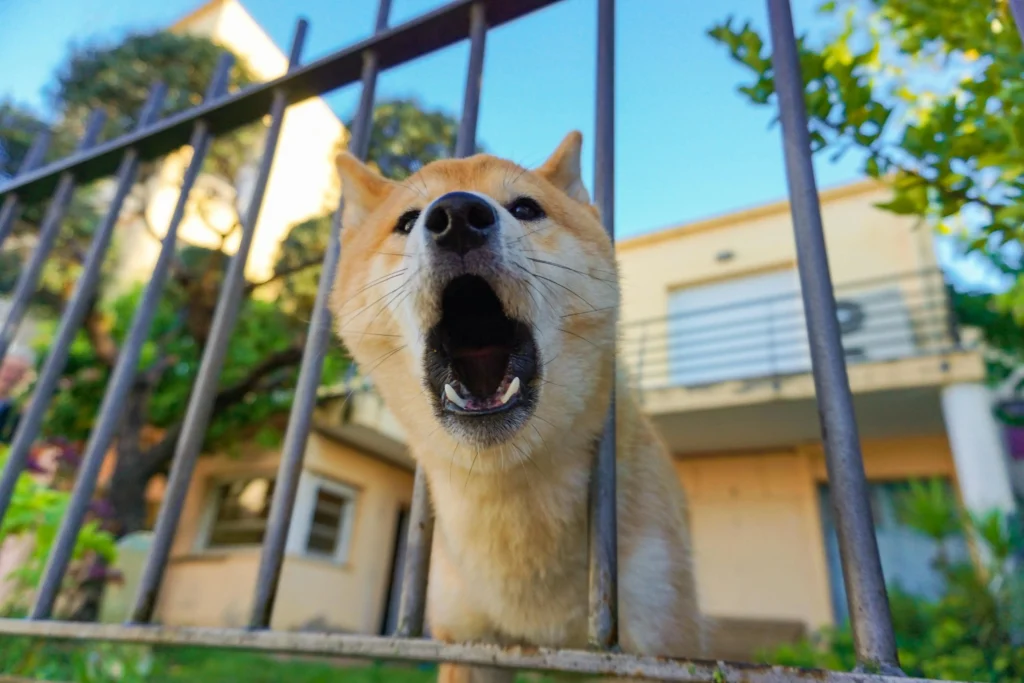
The Absence of a Statewide Dog Barking Law
North Dakota doesn’t have a specific law solely targeting dog barking. However, the state’s general noise ordinances and potential nuisance lawsuits provide the legal framework for addressing excessive barking.
Noise Ordinances and Their Impact on Dog Barking
Many municipalities (cities, towns) in North Dakota have established noise ordinances that regulate acceptable noise levels during specific times of day. These ordinances might not explicitly mention dog barking, but they could be applied to address excessive or continuous barking that disrupts the peace and tranquility of the neighborhood.
How Noise Ordinances Apply to Dog Barking
While specific decibel limits might vary by municipality, some key factors influence how noise ordinances apply to dog barking:
- Frequency and Duration: Sporadic barking throughout the day might be tolerated, but persistent, prolonged barking exceeding established noise limits could be considered a violation.
- Time of Day: Noise ordinances often have stricter limitations during nighttime hours to ensure reasonable sleep for residents.
- Reasonableness and Context: Factors like the dog’s breed, the cause of the barking (intruders, unfamiliar sounds), and attempts by the owner to quiet the dog can be considered when determining reasonableness.
Consequences of Violating Noise Ordinances
If excessive dog barking violates a local noise ordinance, the owner might face:
- Warnings: Initial violations might result in warnings from animal control or local authorities.
- Fines: Repeated violations could lead to fines for the dog owner.
- Court Orders: In extreme cases, a court might order additional measures to address the barking, potentially involving training or restrictions on dog ownership.
Nuisance Lawsuits and Dog Barking
In addition to noise ordinances, North Dakota’s nuisance laws could be used in extreme cases of excessive dog barking. A nuisance lawsuit claims that the barking substantially interferes with the use and enjoyment of neighboring property.
Lawsuit Regarding Dog Barking
For a successful nuisance lawsuit regarding dog barking, the plaintiff (person filing the lawsuit) would typically need to prove:
- Unreasonable Barking: The barking must be excessive, continuous, and unreasonable in its frequency, duration, or volume.
- Substantial Interference: The barking must significantly disrupt the plaintiff’s ability to use and enjoy their property.
- Causation: The barking must be directly attributable to the defendant’s (dog owner’s) dog.
The Importance of Responsible Dog Ownership
While legal aspects are important, the best approach is to minimize excessive barking in the first place:
- Understanding the Reasons: Identify potential triggers for your dog’s barking, such as separation anxiety, boredom, or unfamiliar sounds.
- Positive Reinforcement Training: Work with a qualified dog trainer to address unwanted barking behaviors through positive reinforcement techniques.
- Providing Enrichment: Ensure your dog receives enough exercise, mental stimulation, and playtime to address potential boredom-related barking.
- Addressing Underlying Medical Issues: Rule out any underlying medical conditions that might cause discomfort and excessive barking.
Effective Communication with Neighbors
Open communication with your neighbors fosters a more positive environment:
- Proactive Approach: Talk to your neighbors before a barking issue arises. Explain your efforts to address the behavior and seek their understanding.
- Addressing Concerns: If your neighbor raises concerns about barking, listen attentively and be open to suggestions for improvement.
- Seeking Mediation: If communication is difficult, consider community mediation services offered by some municipalities to resolve neighbor disputes.
Dog Poop Disposal Laws in North Dakota
North Dakota, known for its stunning landscapes, friendly communities, and love for animals, prioritizes a clean and healthy environment for everyone. Dog waste disposal is a crucial aspect of responsible pet ownership, and while there isn’t a single, state-wide law mandating specific disposal methods, several legal considerations and community initiatives promote responsible scooping habits.

Responsible Dog Poop Disposal
Dog waste isn’t just unpleasant; it can pose significant health and environmental risks:
- Public Health Concerns: Dog feces can harbor harmful bacteria and parasites that can transmit diseases to humans and other animals.
- Water Contamination: Left uncollected, dog waste can wash into waterways, contaminating drinking water sources and impacting aquatic ecosystems.
- Environmental Pollution: Dog waste contributes to nutrient pollution in soil and water bodies, disrupting the natural balance.
Legal Framework for Dog Waste Disposal
North Dakota doesn’t have a single, state-wide law mandating specific dog waste disposal methods. However, several legal principles contribute to responsible scooping:
- Public Nuisance Laws: Many municipalities have public nuisance ordinances that could apply to dog waste left on public property. Leaving dog waste behind could be considered a nuisance and subject to fines for the owner.
- Leash Laws and Public Access: Most municipalities have leash laws requiring dogs to be leashed in public spaces. This allows for easier owner control and facilitates responsible scooping after their pet.
- Animal Control Regulations: Local animal control departments might have regulations or educational initiatives promoting responsible pet ownership, including dog waste disposal.
Local Ordinances
While there’s no state-wide law, many North Dakota municipalities have enacted specific ordinances regarding dog waste disposal:
- Mandatory Scooping: Many ordinances mandate dog owners pick up and dispose of their dog’s waste in public spaces like parks, sidewalks, and trails.
- Carrying Bags: Some ordinances might require dog owners to carry appropriate waste disposal bags while walking their dog in public areas.
- Designated Disposal Locations: Some municipalities might provide designated waste disposal bins in parks or public areas for convenient disposal.
Always check with your local municipality’s animal control department or website to understand the specific dog waste disposal laws and regulations in your area.
Benefits of Responsible Dog Waste Disposal
By becoming a responsible scooper, you contribute to a cleaner and healthier environment:
- Protecting Public Health: Proper disposal minimizes the risk of disease transmission to humans and other animals.
- Safeguarding Waterways: Scooping prevents dog waste from contaminating water sources and harming aquatic ecosystems.
- Promoting Responsible Pet Ownership: Sets a positive example for other dog owners and fosters a cleaner environment for everyone.
Community Initiatives for Responsible Scooping
Beyond legal mandates, several community initiatives promote responsible dog waste disposal in North Dakota:
- Educational Campaigns: Local animal shelters, veterinary clinics, and environmental groups might organize campaigns to educate dog owners about the importance of scooping and proper disposal methods.
- Providing Waste Disposal Bags: Some parks or trails offer complimentary dog waste disposal bags to ensure convenient scooping for all dog owners.
- Volunteer Initiatives: Community clean-up events might target dog waste in public spaces, highlighting the importance of responsible pet ownership.
Choosing the Right Dog Waste Disposal Methods
Several responsible dog waste disposal methods exist:
- Biodegradable Bags: Picking up waste with biodegradable bags and disposing of them in appropriate trash receptacles is a common approach.
- Pet Waste Stations: Utilizing designated pet waste stations with disposal bins minimizes the risk of contamination from left-behind waste.
- Home Composting Systems: Some dog owners opt for home composting systems specifically designed for pet waste, ensuring proper decomposition and potential use as fertilizer (check local regulations for composting pet waste).
Dog Licensing Laws in North Dakota
North Dakota, a state renowned for its wide-open spaces and love for animals, recognizes the importance of responsible pet ownership. Dog licensing plays a crucial role in promoting animal welfare, disease prevention, and public safety. While specific licensing requirements might vary by municipality, this guide explores the key aspects of dog licensing laws in North Dakota.

The Importance of Dog Licensing
Dog licensing offers numerous benefits for both dogs and communities:
- Identification and Recovery: A dog license acts as a form of identification, increasing the chances of reuniting lost dogs with their owners.
- Vaccination Verification: Licensing often requires proof of up-to-date vaccinations, protecting public health and preventing the spread of diseases.
- Funding for Animal Welfare Programs: Licensing fees contribute to funding animal control services, shelters, and rabies prevention initiatives.
- Responsible Pet Ownership: Licensing encourages responsible ownership by holding dog owners accountable for their pets.
Dog Licensing Requirements
North Dakota itself doesn’t have a mandatory dog licensing law. However, most municipalities (cities, towns) within the state have established dog licensing ordinances.
Here’s a breakdown of typical dog licensing requirements at the municipal level:
- Licensing Age: Most municipalities require dog licensing for all dogs exceeding a specific age, typically around four to six months old.
- Licensing Process: The process usually involves contacting your local animal control department or city hall to obtain a license application.
- Proof of Vaccination: Proof of current rabies vaccination and other core vaccinations might be required for licensing.
- Licensing Fees: Licensing fees vary by municipality and might depend on the dog’s age, sterilization status (spayed/neutered), and breed.
Benefits of Dog Licensing
While adhering to local ordinances is crucial, dog licensing offers additional benefits for responsible pet owners:
- Reduced Adoption Fees: Some animal shelters offer reduced adoption fees for licensed dogs.
- Discounts on Pet Services: Certain veterinary clinics or pet stores might provide discounts on services for licensed dogs.
- Peace of Mind: Knowing your dog is licensed offers peace of mind in case they get lost, increasing the chances of a successful reunion.
Licensing Information for Your Area
As licensing requirements are established at the municipal level, the specific process and fees can vary. Here’s how to find information about dog licensing in your area:
- Local Animal Control Department: Contact your local animal control department. They can provide detailed information on licensing requirements, fees, and the application process.
- Municipal Website: Many municipalities have dedicated sections on their websites outlining dog licensing regulations and online application options.
- Veterinary Clinic: Your veterinarian might also be a valuable resource for information on local dog licensing requirements.
Alternatives to Traditional Dog Licenses
Some municipalities might offer alternative identification options for dogs:
- Microchipping: Microchipping provides a permanent form of identification implanted under the dog’s skin. While microchipping is not a replacement for licensing in most areas, it can be an additional layer of security.
- Rabies Vaccination Tags: Some municipalities issue rabies vaccination tags along with licenses. These tags might be required to be worn by the dog for visual identification of vaccination status.
Responsible Pet Ownership
Dog licensing is a crucial aspect of responsible pet ownership, but it’s not the only factor:
- Proper Identification: Ensure your dog wears a collar with a current identification tag alongside their license or microchip information.
- Vaccinations and Preventative Care: Maintain your dog’s vaccinations and schedule regular veterinary checkups to ensure their health and well-being.
- Training and Socialization: Invest in positive reinforcement training and socialization to create a well-behaved and confident canine companion.
Dog Leash Laws in North Dakota
North Dakota, known for its vast plains, friendly communities, and love for animals, prioritizes the safety and well-being of both humans and canine companions. Dog leash laws play a crucial role in creating a harmonious environment for everyone enjoying public spaces. While there isn’t a single, state-wide leash law, most municipalities (cities, towns) in North Dakota have established leash ordinances. Let’s explore the key aspects of dog leash laws in North Dakota, empowering you to be a responsible dog owner and navigate public spaces safely.

The Importance of Dog Leash Laws
Dog leash laws serve several important purposes:
- Public Safety: Leashes help ensure control over your dog, minimizing the risk of bites, injuries, or altercations with other animals or people.
- Protecting Wildlife: Unleashed dogs can disrupt wildlife habitats and chase birds or small animals. Leashes help protect these creatures.
- Promoting Responsible Ownership: Leash laws encourage responsible ownership by requiring pet parents to maintain control over their dogs.
- Peace of Mind for Everyone: Knowing dogs are leashed provides a sense of security for people using public spaces, especially children who might be frightened by unleashed dogs.
Dog Leash Laws at the Municipal Level
North Dakota doesn’t have a blanket leash law applicable throughout the state. Instead, leash ordinances are established by individual municipalities. These ordinances typically outline:
- Leash Requirements: Most ordinances mandate that dogs be leashed on a leash of a specific length (often 6 feet) in public spaces like sidewalks, parks, and trails.
- Exceptions: Some municipalities might designate specific off-leash areas like dog parks where dogs can run freely under owner supervision. Always check signage before letting your dog off-leash.
- Enforcement: Animal control officers or law enforcement personnel are responsible for enforcing leash laws. Violations might result in warnings or fines for the dog owner.
Specific Leash Law Information for Your Area
As leash laws are established at the municipal level, details can vary by location. Here’s how to find information about dog leash laws in your area:
- Municipal Website: Many municipalities have dedicated sections on their websites outlining leash laws and regulations. Look for sections on animal control or parks and recreation.
- Local Animal Control Department: Contact your local animal control department. They can provide detailed information on leash requirements in your area.
- Signage in Public Areas: Parks and other public spaces often have signage outlining leash regulations specific to that area.
Responsible Dog Walking
While adherence to leash laws is crucial, responsible dog walking involves more than just a leash:
- Maintaining Control: Choose a leash that allows you to maintain control over your dog and prevent them from pulling or lunging.
- Picking Up Waste: Always carry waste disposal bags and clean up after your dog to maintain a clean and pleasant environment for everyone.
- Mindful Walking: Be aware of your surroundings and avoid situations that might frighten or stress your dog, like approaching people or dogs without permission.
- Voice Commands and Training: Train your dog to respond to basic voice commands like “heel” and “come” for better control during walks, even on a leash.
Benefits of Responsible Dog Walking
Responsible dog walking through leash use and proper etiquette offers numerous benefits:
- Safer Public Spaces: Leashed dogs create a safer environment for everyone using public spaces, minimizing the risk of accidents or altercations.
- Reduced Stress for Dogs: Leashes can provide a sense of security and control for some dogs, especially in unfamiliar environments.
- Positive Exercise: Leashed walks provide dogs with the necessary exercise and mental stimulation they need to stay healthy and happy.
- Strengthening the Bond: Walks with your dog offer valuable bonding time, fostering a strong and trusting relationship.
Dangerous Dog Laws in North Dakota
North Dakota, a state known for its wide-open spaces and love for animals, prioritizes the safety of both humans and canine companions. While there isn’t a single, state-wide law specifically defining “dangerous dogs,” legal principles and local ordinances address situations involving potentially dangerous canines. This guide explores the landscape of dangerous dog laws in North Dakota, empowering you to be a responsible dog owner and understand the legal framework if an incident occurs.
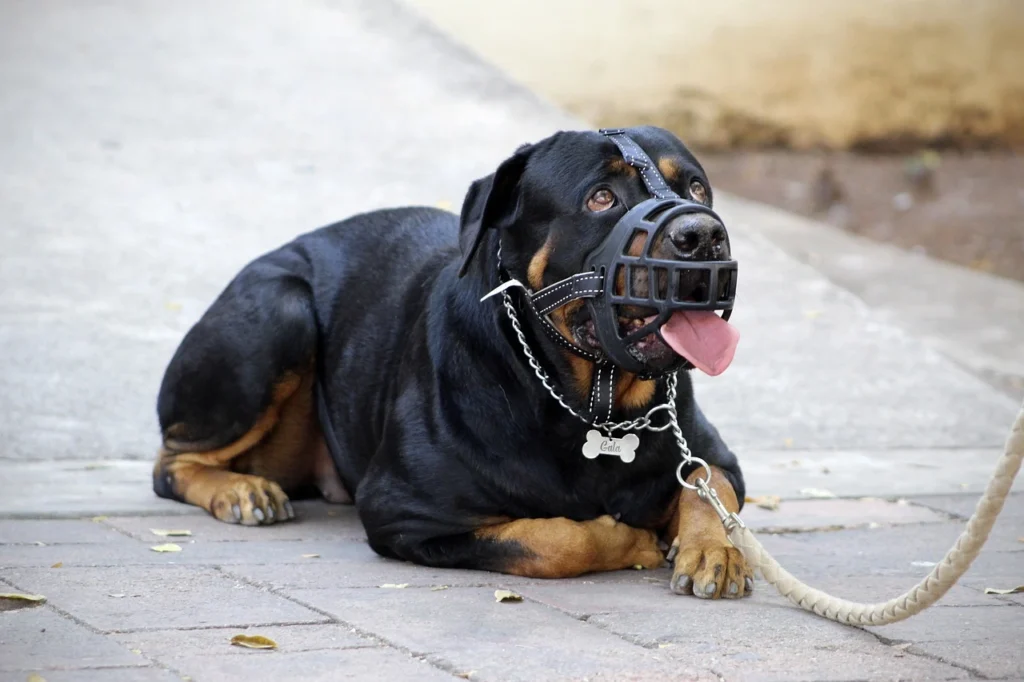
The Absence of a Statewide Dangerous Dog Law
North Dakota doesn’t have a single, comprehensive law defining dangerous dogs and outlining specific regulations. However, the state relies on a combination of legal principles and potential local ordinances to address situations involving potentially dangerous dogs.
Key Concepts in Dangerous Dog Cases
Several key concepts come into play when considering dangerous dogs in North Dakota:
- Breed-Specific Bans: North Dakota doesn’t have any statewide breed-specific bans on dogs considered potentially dangerous. However, some municipalities might have ordinances restricting specific breeds.
- Focus on Behavior: The focus in North Dakota leans towards a dog’s behavior rather than breed. Prior incidents of aggression, threats, or bites are considered strong indicators of potential danger.
- “One-Bite Rule” and Beyond: North Dakota courts often apply the “one-bite rule” in dog bite liability cases. This principle suggests that, in the absence of prior aggressive behavior, the owner might not be held strictly liable for the first bite. However, subsequent bites after the first incident could lead to the dog being deemed dangerous and the owner being held liable for negligence if they didn’t take steps to prevent future attacks.
Local Ordinances
Some municipalities (cities, towns) in North Dakota might have established ordinances addressing potentially dangerous dogs. These ordinances could include:
- Dangerous Dog Designation: Procedures for animal control to designate a dog as potentially dangerous based on past behavior.
- Leash and Muzzle Requirements: Mandating leash restrictions and muzzle use for designated dangerous dogs in public spaces.
- Owner Training and Insurance Requirements: Potential requirements for owners of designated dangerous dogs to undergo specific training and maintain higher liability insurance coverage.
The Importance of Responsible Dog Ownership
While legal aspects are important, the best approach is to prevent situations involving potentially dangerous dogs altogether:
- Proper Training and Socialization: Invest in positive reinforcement training and socialization for your dog from a young age to address potential aggression and ensure good canine citizenship.
- Understanding Body Language: Learn how to recognize signs of stress or anxiety in your dog to avoid situations that might trigger aggression.
- Responsible Breeding Practices: If considering breeding, ensure responsible breeding practices that prioritize good temperament and health in the offspring.
- Seeking Professional Help: If you have concerns about your dog’s behavior, consult a qualified animal behaviorist for guidance and training strategies.
What to Do if Your Dog Bites Someone
If your dog bites someone, take immediate action:
- Seek Medical Attention: Ensure the injured person receives prompt medical attention for any injuries sustained.
- Report the Incident: Contact animal control to report the incident. They might investigate and determine if further action is necessary.
- Seek Legal Counsel: If facing legal action due to the bite, consider consulting with an attorney specializing in animal law to understand your rights and potential consequences.
Additional Considerations
- Homeowner’s Insurance: Most homeowner’s insurance policies cover dog bite liability to some extent. However, limitations and exclusions might apply. Review your policy to understand your coverage and potential needs for additional liability insurance if your dog is designated as dangerous.
- Children and Dog Safety: Always supervise interactions between children and any dog, regardless of breed or familiarity. Educate children about respectful interactions with dogs and how to identify signs of potential aggression.
- The Importance of Responsible Rehoming: If you can no longer care for a dog exhibiting dangerous tendencies, prioritize responsible rehoming through experienced animal rescues or shelters equipped to handle potentially dangerous canines.
Dog Health and Welfare Laws in North Dakota
North Dakota, a state known for its wide-open spaces and love for animals, recognizes the importance of canine companions in our lives. While there isn’t a single, state-wide law solely focused on dog health and welfare, several legal principles and community initiatives contribute to ensuring the well-being of our furry friends. Let’s delve into the landscape of dog health and welfare laws in North Dakota, empowering you to be a responsible dog owner and advocate for your pet’s health.
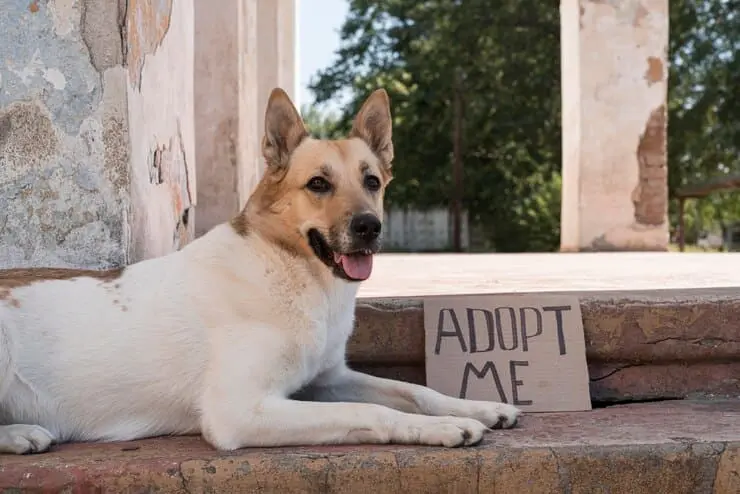
Statewide Dog Health and Welfare Law
North Dakota doesn’t have a single, comprehensive law outlining specific dog health and welfare requirements. However, the state leverages various legal mechanisms and encourages responsible pet ownership practices to promote canine well-being.
Understanding Key Legal Concepts Related to Dog Health
Several legal aspects in North Dakota influence dog health and welfare:
- Animal Cruelty Laws: North Dakota has anti-cruelty laws that prohibit the willful neglect, torture, or abuse of animals, including dogs. These laws ensure basic necessities like food, water, shelter, and veterinary care in cases of neglect.
- Public Nuisance Laws: Many municipalities (cities, towns) have public nuisance ordinances. Leaving a dog tethered outside for extended periods without proper access to food, water, or shelter could be considered a violation.
- Leash Laws and Public Access: Most municipalities have leash laws requiring dogs to be leashed in public spaces. This helps prevent accidents and ensures dogs can be controlled during walks, minimizing the risk of exposure to hazards or diseases.
Promoting Dog Health and Welfare
While legal aspects are crucial, a responsible dog owner goes beyond the minimum requirements:
- Veterinary Care: Regular veterinary checkups, vaccinations, and parasite prevention are essential for maintaining your dog’s health and preventing the spread of diseases.
- Proper Nutrition: Provide your dog with a balanced diet appropriate for their age, breed, and activity level. Consult your veterinarian for guidance on choosing the right food.
- Exercise and Enrichment: Dogs require regular exercise and mental stimulation to stay physically and mentally healthy. Engage in walks, playtime, and training exercises.
- Safe and Secure Environment: Ensure your dog’s living space is clean, escape-proof, and provides adequate shelter from extreme weather conditions.
Community Initiatives for Dog Health and Welfare
North Dakota fosters dog health and welfare through various community initiatives:
- Animal Shelters and Rescue Organizations: These organizations provide essential services like adoption, spaying/neutering programs, and low-cost veterinary care, contributing to responsible pet ownership and animal welfare.
- Veterinary Outreach Programs: Some veterinary clinics or animal welfare organizations might offer mobile clinics or discounted services in underserved communities, ensuring broader access to veterinary care.
- Dog-Friendly Events and Activities: Many communities host dog-friendly events like walks, runs, or training sessions, promoting exercise, socialization, and responsible ownership.
The Importance of Responsible Dog Ownership
Responsible dog ownership is a cornerstone of dog health and welfare:
- Understanding Your Dog’s Needs: Learn about your dog’s specific breed requirements and tailor your care approach to their needs.
- Training and Socialization: Invest in positive reinforcement training and socialization to create a well-behaved and confident canine companion.
- Identification and Microchipping: Ensure your dog wears a collar with identification tags and consider microchipping for permanent identification in case they get lost.
- Licensing: While not mandatory statewide, most municipalities require dog licensing. Licensing fees often contribute to funding animal control services and rabies prevention initiatives.
Finding Resources for Dog Health and Welfare
Numerous resources exist to help you ensure your dog’s well-being:
- Local Veterinarians: Your veterinarian is a valuable resource for information on dog health, nutrition, and preventive care.
- Animal Shelters and Rescue Organizations: Local shelters and rescues offer information on responsible pet ownership, training, and might have low-cost veterinary resources.
- North Dakota Department of Agriculture – Animal Health Division: This department provides information on animal health regulations, including rabies vaccination requirements.
Dog Public Access Laws in North Dakota
North Dakota, a state known for its vast prairies and friendly communities, recognizes the joy and companionship dogs bring to our lives. While there isn’t a single, state-wide law dictating dog access to public spaces, a network of municipal ordinances and responsible ownership practices pave the way for canine inclusion in many areas. Let’s explore the landscape of dog public access laws in North Dakota, empowering you to navigate public spaces with your furry friend and become a responsible dog owner.
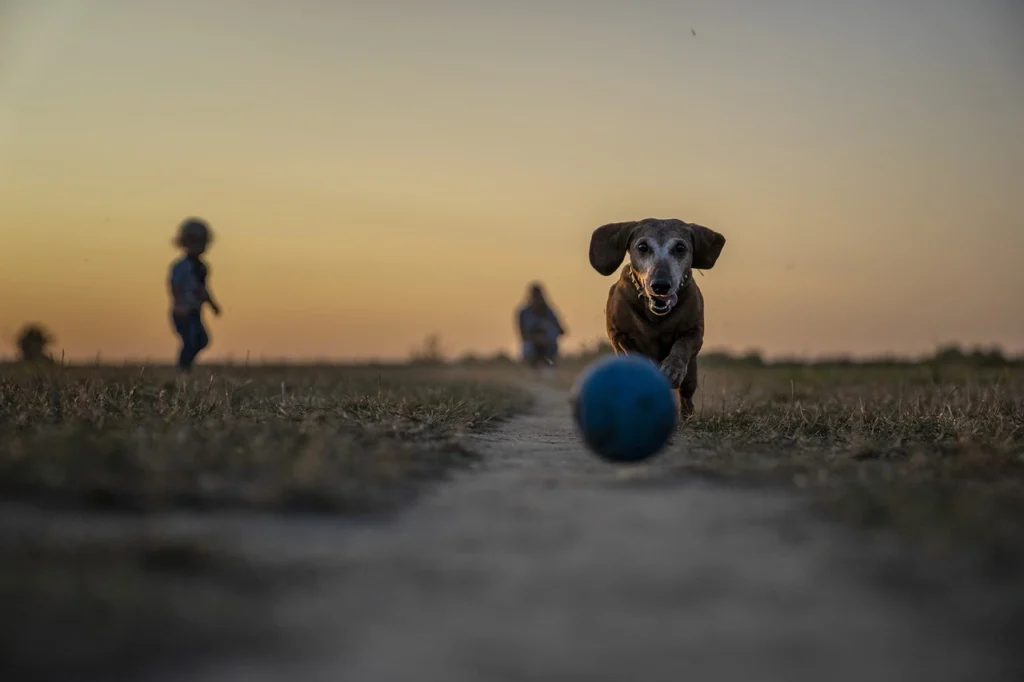
Statewide Dog Public Access Law
North Dakota doesn’t have a blanket law governing dog access to public spaces. Instead, the responsibility falls on individual municipalities (cities, towns) to establish ordinances regarding dogs in public areas like parks, trails, and public buildings.
Municipal Dog Public Access Ordinances
Most municipalities in North Dakota have established ordinances outlining dog access regulations in public spaces. These ordinances typically address:
- Leash Requirements: Leash mandates are common, requiring dogs to be on a leash of a specific length (often 6 feet) in public spaces.
- Designated Off-Leash Areas: Some municipalities establish designated off-leash areas like dog parks where dogs can run freely under owner supervision. Always check signage before letting your dog off-leash.
- Restricted Areas: Certain areas, like playgrounds, swimming areas, or public buildings, might be off-limits to dogs entirely.
Dog Public Access Laws in Your Area
As dog public access laws are established at the municipal level, specifics can vary by location. Here’s how to find information about dog access in your area:
- Municipal Website: Many municipalities have dedicated sections on their websites outlining leash laws, park regulations, and designated dog park locations.
- Local Animal Control Department: Contact your local animal control department. They can provide detailed information on leash requirements, designated off-leash areas, and access restrictions for specific public spaces.
- Signage in Public Areas: Parks and other public spaces often have signage outlining specific regulations regarding dog access and leash use.
Responsible Dog Ownership for Public Access
Following leash laws and access restrictions is crucial, but responsible dog ownership for public access involves more:
- Voice Commands and Reliable Recall: Train your dog to respond to basic voice commands like “heel” and “come” to ensure control, even on a leash, in public spaces.
- Picking Up Waste: Always carry waste disposal bags and clean up after your dog to maintain a clean and pleasant environment for everyone.
- Respectful Interactions: Be mindful of other park users, especially children, and keep your dog leashed unless in a designated off-leash area.
- Socialization: Proper socialization from a young age helps your dog feel comfortable around other dogs and people, making public outings more enjoyable for everyone.
Benefits of Responsible Dog Public Access
Responsible dog access to public spaces offers numerous benefits:
- Improved Physical and Mental Health: Exercise walks and playtime in public spaces contribute to your dog’s physical and mental well-being.
- Socialization Opportunities: Public spaces provide opportunities for your dog to interact with other dogs and people, promoting positive social experiences.
- Stronger Bond with Your Dog: Shared experiences in public spaces can strengthen the bond between you and your canine companion.
- Community Building: Dog-friendly public spaces can foster a sense of community among dog owners and create opportunities for interaction.
Dog Park Etiquette
If you’re venturing to a dog park, remember proper etiquette:
- Vaccinations: Ensure your dog is up-to-date on vaccinations before entering a dog park.
- Dog Temperament: Only bring dogs who are well-socialized and comfortable interacting with other dogs.
- Supervision: Always supervise your dog while in the dog park and be ready to intervene if necessary.
- Cleaning Up: Pick up after your dog to maintain a clean and enjoyable environment for everyone.
The Importance of Responsible Advocacy
Responsible dog owners can advocate for increased dog access in their communities:
- Respectful Communication: Engage in respectful communication with local authorities or park officials to express your interest in more dog-friendly spaces.
- Volunteer Efforts: Volunteer to help maintain existing dog parks or participate in clean-up initiatives to demonstrate responsible ownership.
- Positive Representation: Be a positive ambassador for dog ownership by following leash laws, cleaning up after your dog, and ensuring your dog is well-behaved in public spaces.
Dog Travel and Transportation Laws in North Dakota
North Dakota, a state known for its wide-open spaces and adventurous spirit, welcomes canine companions along for the ride! Whether you’re embarking on a road trip across the state or planning a cross-country journey, ensuring your dog travels safely and comfortably is paramount. While there isn’t a single, state-wide law governing dog travel within North Dakota, several regulations and best practices contribute to a smooth and responsible travel experience.

Statewide Dog Travel Law
North Dakota doesn’t have a specific law solely focused on dog travel within the state. However, adherence to existing animal welfare regulations and responsible pet ownership practices are crucial for safe dog transportation.
Key Considerations for Dog Travel in North Dakota
Several factors influence dog travel within North Dakota:
- Vehicle Safety: Ensure your dog is securely restrained in your vehicle during travel. Consider using a crate or harness secured to an appropriate anchor point, or a pet barrier separating the cargo area.
- Climate Control: Maintain a comfortable temperature inside your vehicle for your dog. Avoid leaving them unattended in a parked car during extreme weather conditions.
- Rest Stops and Breaks: Schedule regular breaks during long journeys to allow your dog to eliminate, drink water, and stretch their legs.
- Vaccinations: While not mandated by state law for travel within North Dakota, keeping your dog’s vaccinations current, including rabies, is highly recommended.
Recommendations from North Dakota Department of Agriculture
The North Dakota Department of Agriculture emphasizes responsible pet ownership during travel. While they don’t have specific regulations, they advise:
- Proper Identification: Ensure your dog wears a collar with identification tags, including your contact information and microchip information (if applicable).
- Health Certificates: For interstate travel or specific events, health certificates from a licensed veterinarian might be required. Check with your destination state or event organizers for specific requirements.
Traveling with Your Dog
If you’re planning to travel beyond North Dakota with your furry friend, additional considerations come into play:
- Interstate Travel Requirements: Each state might have different regulations for dog travel. Research your destination state’s requirements regarding vaccinations, health certificates, and potential restrictions on specific breeds.
- Airline Regulations: Airlines have varying policies regarding pet travel. Familiarize yourself with the airline’s specific requirements for in-cabin transport or checked baggage for pets.
- Pet-Friendly Accommodations: When booking accommodations, choose pet-friendly hotels or vacation rentals that cater to canine companions.
Resources for Planning Dog Travel
Several resources can help you plan dog travel within North Dakota and beyond:
- North Dakota Department of Agriculture – Animal Health Division
- United States Department of Agriculture (USDA) – Animal and Plant Health Inspection Service (APHIS)
- American Veterinary Medical Association (AVMA)
Beyond Legal Requirements: Responsible Dog Travel Practices
Responsible dog travel goes beyond following regulations:
- Acclimation: If your dog isn’t accustomed to car travel, gradually introduce them to short rides before embarking on longer journeys.
- Travel Essentials: Pack essentials for your dog, including food, water, waste disposal bags, bowls, medications (if applicable), a familiar blanket or toy, and leash.
- Motion Sickness: Consult your veterinarian if your dog experiences motion sickness during travel. They might recommend medication or calming aids.
Finding Pet-Friendly Activities in North Dakota
North Dakota offers numerous pet-friendly activities and destinations:
- Dog Parks: Many municipalities have designated dog parks where your dog can run freely under your supervision.
- Hiking Trails: Several dog-friendly hiking trails allow you to explore North Dakota’s scenic beauty with your canine companion. Always check leash requirements and clean up after your dog.
- Pet-Friendly Restaurants and Breweries: Some restaurants and breweries in North Dakota welcome well-behaved dogs on patios or outdoor seating areas.
Dog Housing and Accommodation Laws in North Dakota
North Dakota, known for its welcoming communities and wide-open spaces, recognizes the importance of responsible pet ownership. Finding pet-friendly housing can sometimes pose challenges, but North Dakota offers a framework for both tenants and landlords to navigate dog housing and accommodation. While there isn’t a single, state-wide law dictating dog restrictions in housing, federal and local regulations play a crucial role. Let’s explore the legalities of dog housing in North Dakota, empowering you to find a comfortable home for yourself and your furry friend.
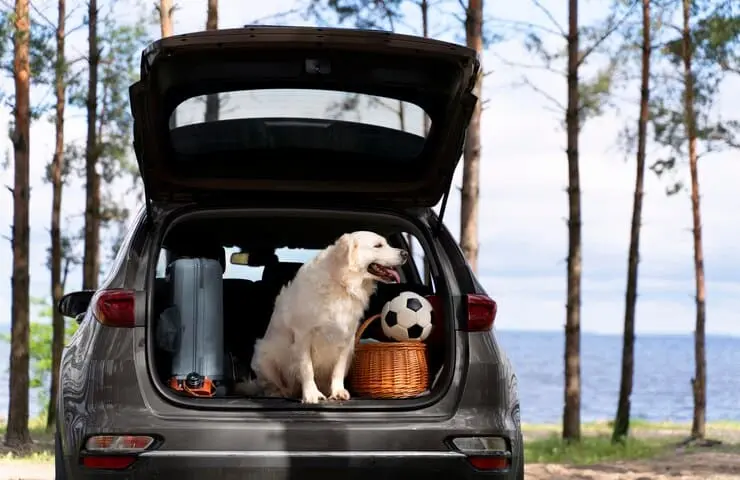
The Fair Housing Act and Service Animals
The Fair Housing Act (FHA) is a federal law that prohibits discrimination in housing based on several factors, including disability. The FHA protects the rights of individuals with disabilities to live with service animals, even in buildings with “no pet” policies.
- Understanding Service Animals: The FHA defines service animals as dogs (or miniature horses) trained to perform specific tasks that assist people with disabilities. Emotional support animals (ESAs) are not covered under the FHA.
- Reasonable Accommodations: Landlords are obligated to provide reasonable accommodations for tenants with disabilities who require service animals. This might involve waiving pet fees, deposits, or breed restrictions.
- Documentation: Landlords cannot require extensive documentation for service animals. They can ask for verification of the disability and a letter from a healthcare professional outlining the service the animal performs.
Local and Municipal Regulations
While the FHA protects service animals, some municipalities (cities, towns) in North Dakota might have ordinances regarding pet restrictions in housing units. These ordinances can address:
- Breed Restrictions: Certain municipalities might have limitations on specific dog breeds based on size, weight, or perceived aggression.
- Pet Deposits and Fees: Landlords might be allowed to charge reasonable pet deposits and fees to cover potential damage caused by pets.
- Number of Pets: Ordinances could limit the number of pets allowed in a single housing unit.
Finding Information on Dog Housing Regulations in Your Area
As dog housing regulations can vary by location, here’s how to find information specific to your area:
- Municipal Website: Many municipalities have dedicated sections on their websites outlining landlord-tenant regulations and potential pet restrictions in housing units.
- Fair Housing Administration Website: The FHA website offers resources and information on your rights as a tenant with a service animal
- Local Tenant Advocacy Groups: Tenant advocacy groups in your area might be able to provide guidance on local regulations and your rights as a pet owner.
Responsible Dog Ownership in Housing
Following regulations is essential, but responsible dog ownership in housing goes beyond the legal aspects:
- Full Disclosure: Be upfront with landlords about your dog, including breed, size, and temperament.
- Proof of Vaccinations: Provide documentation showing your dog is up-to-date on vaccinations.
- Obedience Training: Invest in obedience training for your dog to ensure they are well-behaved and minimize disruptive behavior in your housing unit.
- Maintaining a Clean and Damage-Free Environment: Clean up after your dog promptly and address any potential damage caused by your pet in a timely manner.
Benefits of Responsible Dog Ownership in Housing
Responsible dog ownership in housing offers numerous advantages:
- Increased Housing Options: Demonstrating responsible pet ownership can increase your chances of finding pet-friendly housing options.
- Positive Relationships with Landlords: Maintaining a well-behaved pet and addressing any issues promptly can foster a positive relationship with your landlord.
- Peace of Mind for Everyone: Responsible dog ownership creates a more peaceful and respectful environment for all residents within the housing complex.
Finding Pet-Friendly Housing
Several resources can assist you in finding pet-friendly housing in North Dakota:
- Apartment Listing Websites: Many online apartment listing websites allow you to filter searches for pet-friendly rentals.
- Local Animal Shelters and Rescue Organizations: Animal shelters or rescues might have connections to pet-friendly landlords or rentals in your area.
- Word-of-Mouth: Reach out to friends, family, or colleagues who might have information about pet-friendly housing options.
Dog Adoption and Sale Laws in North Dakota
North Dakota, known for its vast prairies and friendly communities, is a place where many families choose to welcome dogs into their lives. Whether you’re considering adopting a furry friend from a shelter or purchasing a puppy from a breeder, understanding the legal framework surrounding dog adoption and sale in North Dakota empowers you to make informed decisions. While there isn’t a single, state-wide law governing all aspects of dog adoption and sale, a combination of regulations and best practices contribute to responsible pet ownership.
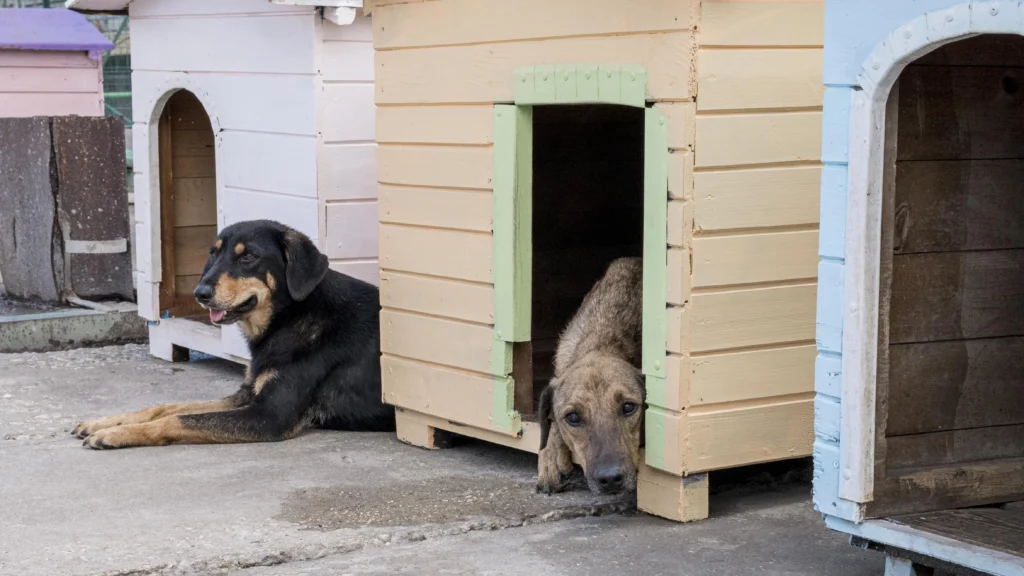
The Absence of a Single, Statewide Law
North Dakota doesn’t have a single, comprehensive law dictating dog adoption and sale processes. However, regulations exist at different levels to ensure animal welfare and responsible practices.
Key Considerations for Dog Adoption
Several factors come into play when adopting a dog in North Dakota:
- Animal Shelters and Rescue Organizations: Many reputable animal shelters and rescue organizations in North Dakota facilitate dog adoptions. These organizations often have adoption fees that cover spaying/neutering, vaccinations, and microchipping.
- Adoption Process: The adoption process typically involves an application, reference checks, a meet-and-greet with the dog, and signing an adoption contract outlining your responsibilities as a pet owner.
- Licensing Requirements: While not mandatory statewide, most municipalities in North Dakota require dog licensing. Licensing fees often contribute to funding animal control services and rabies prevention initiatives.
Finding Reputable Dog Adoption Resources
Here’s how to find reputable dog adoption resources in North Dakota:
- Local Animal Shelters and Rescue Organizations: A quick internet search or contacting your local animal control department can provide information on shelters and rescues in your area. Consider visiting their facilities and interacting with the dogs.
- National Adoption Websites: Websites like Petfinder or Adopt-a-Pet allow you to search for adoptable dogs in your area based on breed, age, and other criteria.
- Breed-Specific Rescue Organizations: If you’re interested in a specific dog breed, consider breed-specific rescue organizations that often take in surrendered dogs and find them new homes.
Key Considerations for Dog Sales
If you’re considering purchasing a dog from a breeder in North Dakota, here are some key points:
- Commercial Dog Breeder Licensing: North Dakota requires commercial dog breeders (those breeding dogs for sale) to obtain a license from the state veterinarian’s office. This license ensures the breeder meets minimum standards for animal care.
- Breeder Reputation and Practices: Research the breeder’s reputation and inquire about their breeding practices. Responsible breeders prioritize the health and well-being of their dogs.
- Health Certifications: Ask for health certifications for the puppy’s parents to ensure they are screened for common breed-related genetic disorders.
- Contracts and Guarantees: Reputable breeders provide written contracts outlining the sale terms, including health guarantees for the puppy.
Finding Reputable Dog Breeders in North Dakota
Here are some resources to help you find reputable dog breeders in North Dakota:
- American Kennel Club (AKC) Marketplace: AKC Marketplace lists breeders who adhere to their ethical breeding guidelines. https://marketplace.akc.org/
- Breed-Specific Kennel Clubs: Many national kennel clubs have breeder referral programs for their specific dog breed.
- Word-of-Mouth Recommendations: Talk to veterinarians, dog trainers, or other dog owners for recommendations on reputable breeders in your area.
Responsible Dog Ownership
Whether adopting or purchasing a dog, responsible ownership practices are essential:
- Matching Your Lifestyle: Consider your lifestyle and living situation when choosing a dog. Research breed characteristics to ensure a good fit for your circumstances.
- Preparing Your Home: Before welcoming your new dog, puppy-proof your home to ensure a safe and comfortable environment.
- Lifetime Commitment: Adopting or purchasing a dog is a long-term commitment. Be prepared to provide your dog with proper care, training, and love throughout its life.
The Importance of Spaying and Neutering
Spaying and neutering your dog is a crucial aspect of responsible pet ownership. Benefits include:
- Reduced Risk of Health Problems: Spaying and neutering can lower the risk of certain cancers and reproductive diseases in dogs.
- Population Control: Spaying and neutering helps prevent unwanted litters and reduces the number of dogs entering shelters.
- Behavioral Improvements: Spaying and neutering can sometimes improve unwanted territorial behaviors in dogs.
Dog Park and Recreation Laws in North Dakota
North Dakota, a state known for its wide-open spaces and love for animals, recognizes the importance of providing recreational opportunities for both humans and their canine companions. While there isn’t a single, state-wide law governing dog parks and recreation, a network of municipal ordinances and responsible ownership practices pave the way for dog-friendly fun in many communities. Let’s explore the legalities and best practices surrounding dog parks and recreation in North Dakota, empowering you to ensure safe and enjoyable outings with your furry friend.

Statewide Dog Park and Recreation Law
North Dakota doesn’t have a blanket law dictating the establishment or operation of dog parks or dog access to recreational areas. The responsibility falls on individual municipalities (cities, towns) to establish ordinances regarding dog parks and off-leash areas within their jurisdictions.
Municipal Dog Park and Recreation Ordinances
Most municipalities in North Dakota have established ordinances outlining regulations for dog parks and access to various recreational areas like parks, trails, and public spaces:
- Leash Laws and Designated Off-Leash Areas: Many municipalities have leash laws requiring dogs to be on leash in public spaces, with designated off-leash areas like dog parks being exceptions. Always check signage before letting your dog off-leash.
- Dog Park Rules: Dog parks often have specific rules regarding dog access, such as requiring vaccinations, size limitations (if applicable), and responsible owner supervision. Picking up after your dog is always mandatory.
- Restricted Areas: Certain areas, like playgrounds, swimming areas, or public buildings, might be off-limits to dogs entirely.
Finding Information on Dog Park and Recreation Laws in Your Area
As dog park and recreation laws are established at the municipal level, specifics can vary by location. Here’s how to find information about dog parks and recreational access for dogs in your area:
- Municipal Website: Many municipalities have dedicated sections on their websites outlining leash laws, park regulations, and designated dog park locations.
- Local Animal Control Department: Contact your local animal control department. They can provide detailed information on dog park regulations, leash requirements in recreational areas, and access restrictions for specific locations.
- Signage in Public Areas: Parks and other recreational areas often have signage outlining specific regulations regarding dog access and leash use.
Responsible Dog Ownership for Park and Recreation
Following leash laws and dog park rules is crucial, but responsible dog ownership for park and recreation includes more:
- Voice Commands and Reliable Recall: Train your dog to respond to basic voice commands like “heel” and “come” to ensure control, even on a leash, in recreational areas.
- Picking Up Waste: Always carry waste disposal bags and clean up after your dog to maintain a clean and pleasant environment for everyone in the park or recreational area.
- Respectful Interactions: Be mindful of other park users, especially children, and keep your dog leashed unless in a designated off-leash area.
- Socialization: Proper socialization from a young age helps your dog feel comfortable around other dogs and people, making park outings more enjoyable for everyone.
Benefits of Responsible Dog Park and Recreation Use
Responsible dog park and recreation use offers numerous benefits for both dogs and humans:
- Improved Physical and Mental Health: Exercise walks and playtime in parks contribute to your dog’s physical and mental well-being.
- Socialization Opportunities: Parks and dog parks provide opportunities for your dog to interact with other dogs and people, promoting positive social experiences.
- Stronger Bond with Your Dog: Shared experiences in parks and recreational areas can strengthen the bond between you and your canine companion.
- Community Building: Dog-friendly parks and recreation areas can foster a sense of community among dog owners and create opportunities for interaction between humans as well.
Dog Park Etiquette
If you’re venturing to a dog park, remember proper etiquette:
- Vaccinations: Ensure your dog is up-to-date on vaccinations before entering a dog park.
- Dog Temperament: Only bring dogs who are well-socialized and comfortable interacting with other dogs.
- Supervision: Always supervise your dog while in the dog park and be ready to intervene if necessary.
- Cleaning Up: Pick up after your dog to maintain a clean and enjoyable environment for everyone.
Dog Food and Nutrition Laws in North Dakota
North Dakota, a state known for its agricultural bounty, recognizes the importance of proper pet nutrition. While there aren’t specific state-wide laws solely focused on dog food and nutrition, a network of federal regulations and responsible pet ownership practices ensure your canine companion receives safe and healthy meals. This section dives into the legalities surrounding dog food in North Dakota and empowers you to make informed decisions about your dog’s diet.

The Absence of Statewide Dog Food Laws
North Dakota doesn’t have its own laws specifically regulating dog food ingredients, labeling, or safety standards. However, the federal government plays a crucial role in ensuring the safety and quality of commercially available dog food.
The Role of the Association of American Feed Control Officials (AAFCO)
The Association of American Feed Control Officials (AAFCO) is a non-profit organization that establishes model regulations for animal feed, including dog food. While AAFCO doesn’t have enforcement power, many states, including North Dakota, adopt these model regulations as a baseline for ensuring pet food safety.
Key Considerations for Dog Food Safety
Several factors influence the safety and quality of dog food available in North Dakota:
- AAFCO Model Regulations: AAFCO establishes guidelines for nutrient profiles, labeling requirements, and good manufacturing practices for pet food manufacturers.
- FDA Oversight: The United States Food and Drug Administration (FDA) is responsible for ensuring the safety of the human food chain, which can indirectly impact dog food safety as some ingredients might be byproducts of human food production.
- Manufacturer Responsibility: Ultimately, dog food manufacturers have a responsibility to ensure their products are safe, meet labeling claims, and are formulated to meet the nutritional needs of dogs.
Finding Information on Dog Food Recalls
If you’re concerned about a specific dog food brand, here’s how to stay informed:
- FDA Website: The FDA website maintains a list of recalled pet foods
- AAFCO Website: The AAFCO website also provides information on pet food recalls
- Dog Food Manufacturer Websites: Reputable dog food manufacturers will prominently display recall information on their websites if their products are affected.
Choosing the Right Dog Food for Your Canine Companion
While there aren’t specific regulations dictating dog food choices in North Dakota, here are some tips for selecting the right food for your dog:
- Understanding Your Dog’s Needs: Consider your dog’s age, breed, activity level, and any specific health conditions when choosing a food.
- Reading Dog Food Labels: AAFCO labeling guidelines require dog food labels to list ingredients, guaranteed analysis (nutrient levels), and feeding recommendations.
- Consulting Your Veterinarian: Your veterinarian is your best resource for guidance on selecting a dog food that meets your pet’s individual needs and dietary requirements.
Alternative Dog Food Options
While commercially available dog food is a convenient option, some pet owners choose alternative feeding methods:
- Homemade Dog Food: Preparing homemade dog food requires careful research to ensure your dog receives a complete and balanced diet. Consult with a veterinary nutritionist for guidance.
- Raw Dog Food Diets: Raw dog food diets are becoming increasingly popular. In-depth research and ensuring proper handling and storage are crucial to minimize the risk of bacterial contamination.
The Importance of Responsible Pet Ownership and Proper Nutrition
Regardless of the dog food you choose, responsible pet ownership practices and proper nutrition are vital:
- Portion Control: Overfeeding can lead to obesity and health problems. Follow the feeding recommendations on the dog food label or consult your veterinarian for guidance.
- Fresh Water Access: Ensure your dog always has access to clean, fresh water.
- Monitoring Your Dog’s Health: Pay attention to your dog’s weight, energy levels, and stool quality. Consult your veterinarian if you notice any changes that might be related to their diet.
The Benefits of Proper Dog Nutrition
Providing your dog with a healthy and balanced diet offers numerous benefits:
- Improved Overall Health: Proper nutrition contributes to a healthy coat, strong bones, good digestion, and a stronger immune system in your dog.
- Increased Energy Levels: A nutritious diet provides your dog with the energy they need for an active lifestyle.
- Reduced Risk of Disease: A balanced diet can help prevent obesity and other health problems associated with poor nutrition.
Dog Health and Veterinary Care Laws in North Dakota
North Dakota doesn’t have a single, comprehensive law governing all aspects of dog health. However, regulations exist at different levels to ensure animal welfare and responsible practices.
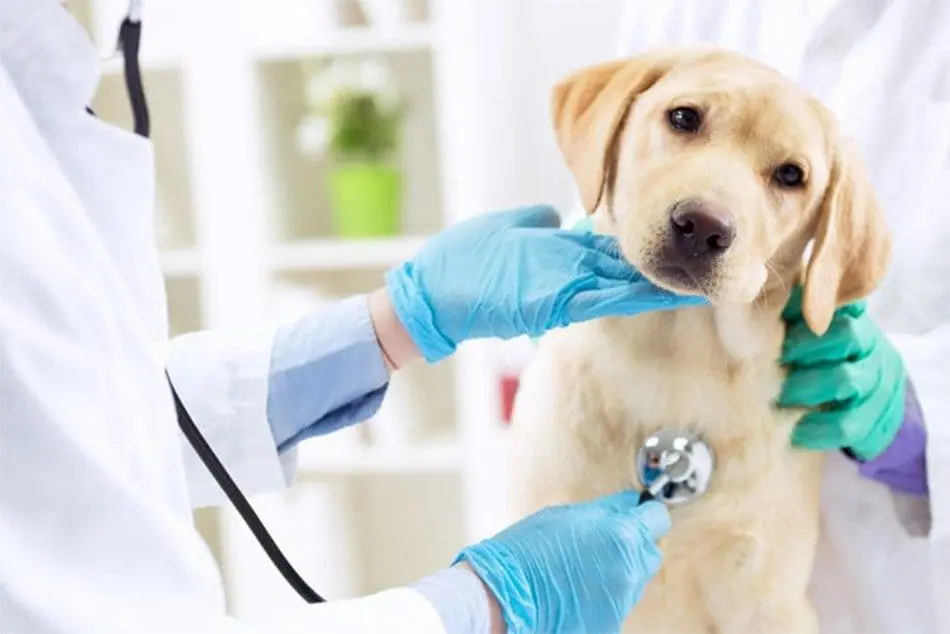
Key Considerations for Dog Health
Several factors influence dog health in North Dakota:
- Vaccinations: Vaccinations are crucial for preventing the spread of contagious diseases in dogs. While not mandated by state law for all situations, core vaccinations like rabies and distemper are highly recommended by veterinarians.
- Parasite Prevention: North Dakota’s climate can be conducive to certain parasites like fleas, ticks, and heartworms. Veterinarians recommend year-round parasite prevention medication to safeguard your dog’s health.
- Veterinary Care: Regular veterinary checkups are essential for maintaining your dog’s health. Routine examinations can detect potential health issues early on, allowing for timely intervention.
Rabies Vaccination Requirements
Although not mandated statewide for all situations, rabies vaccination is crucial for dog health in North Dakota. Here’s what you need to know:Rabies Risk: Rabies is a deadly viral disease that can affect all mammals, including dogs. Vaccination significantly reduces the risk of rabies transmission.
- Municipal Rabies Ordinances: Many municipalities (cities, towns) in North Dakota have ordinances requiring rabies vaccination for dogs. These ordinances might specify age for initial vaccination, frequency of booster shots, and licensing requirements.
- Traveling with Your Dog: If you plan on traveling with your dog beyond North Dakota, some states might have mandatory rabies vaccination requirements for entry. Always research the destination state’s regulations before traveling.
Dog Vaccination Requirements
Here are some resources for information on dog vaccination requirements in North Dakota:
- Local Animal Control Department: Contact your local animal control department for details on rabies vaccination ordinances in your area.
- Veterinarian: Your veterinarian can advise on core and non-core vaccinations recommended for your dog based on their age, lifestyle, and risk factors.
- North Dakota Department of Agriculture – Animal Health Division: The department website might offer information on animal diseases and vaccination recommendations.
Veterinary Licensing and Practice
North Dakota has regulations in place to ensure qualified professionals provide veterinary care:
- Veterinary Licensing: The North Dakota State Board of Veterinary Medicine licenses veterinarians in the state. Licensed veterinarians must complete Doctor of Veterinary Medicine (DVM) degrees and pass national and state licensing exams.
- Veterinary Practice: Licensed veterinarians can diagnose and treat animal health conditions, perform surgeries, and prescribe medications.
Finding a Reputable Veterinarian in North Dakota
Here are some resources for finding a reputable veterinarian in North Dakota:
- American Veterinary Medical Association (AVMA) Directory: [invalid URL removed] allows you to search for veterinarians by location.
- Online Reviews: Read online reviews of veterinary clinics in your area to get a sense of their reputation and services offered.
- Word-of-Mouth Recommendations: Ask friends, family, or other dog owners for recommendations on reputable veterinarians in your area.
Responsible Dog Ownership for Health
Following recommended vaccinations and seeking veterinary care are essential, but responsible dog ownership goes beyond legalities:
- Healthy Diet and Exercise: Provide your dog with a balanced diet and regular exercise to maintain a healthy weight and promote overall well-being.
- Dental Care: Regular dental cleanings and proper dental hygiene practices at home are crucial for your dog’s oral health.
- Spaying and Neutering: Spaying and neutering your dog helps prevent unwanted litters, reduces certain health risks, and can contribute to improved behavior.
- Early Detection and Treatment: Schedule regular veterinary checkups and address any health concerns promptly to ensure timely treatment and a better prognosis for your dog.
Dog Identification and Microchipping Laws in North Dakota
North Dakota, a state renowned for its wide-open spaces and love for animals, understands the importance of responsible pet ownership. While there isn’t a single, state-wide law mandating dog microchipping, a combination of regulations and best practices empowers you to ensure your canine companion is properly identified and can be reunited with you if they ever get lost. This section dives into the legalities surrounding dog identification and microchipping in North Dakota, empowering you to make informed decisions for your dog’s safety.

The Importance of Dog Identification
Having a reliable way to identify your dog is crucial. Here’s why:
- Lost Dog Recovery: A lost dog with proper identification has a significantly higher chance of being returned to you.
- Animal Control Interactions: If your dog gets picked up by animal control, identification tags can help reunite you quickly.
- Proof of Ownership: Identification can serve as proof of ownership in certain situations.
Dog Identification Laws in North Dakota
While North Dakota doesn’t have a state-wide law mandating dog microchipping, most municipalities (cities, towns) in the state have ordinances requiring dog licensing and identification tags. Here’s what you need to know:
- Municipal Dog Licensing and Tags: Most municipalities require dog owners to obtain a license for their dog. Licenses often come with identification tags that include the dog’s license number and owner contact information.
- Renewal of Licenses and Tags: Dog licenses and tags typically require renewal on an annual basis. Contact your local animal control department for details on licensing procedures and renewal processes.
The Benefits of Microchipping Your Dog
Microchipping is a permanent and reliable form of dog identification:
- Small Microchip, Big Impact: A microchip, about the size of a rice grain, is implanted under your dog’s skin between the shoulder blades. It contains a unique identification number linked to your contact information in a national database.
- Faster Reunions: If your dog gets lost and ends up at a shelter or veterinary clinic, a microchip scanner can quickly reveal their identification and reunite them with you.
- Travel Considerations: Some states or countries might require microchipping for dog travel.
Finding Information on Microchipping
Here are some resources for learning more about microchipping your dog in North Dakota:
- Local Animal Control Department: Contact your local animal control department for information on microchipping services or recommendations for local veterinarians who offer microchipping.
- Veterinarian: Your veterinarian can discuss the microchipping process, answer your questions, and perform the procedure.
- American Kennel Club (AKC) Reunite Program: The AKC Reunite program is a national pet recovery database compatible with most microchips. Consider registering your dog’s microchip with a reputable database.
The Microchipping Process
Microchipping your dog is a simple and safe procedure:
- Quick and Painless: The microchip implantation process is similar to a vaccination and typically takes just a few seconds.
- Permanent Identification: Once implanted, the microchip remains under your dog’s skin for their lifetime.
- Cost-Effective: Microchipping is a relatively inexpensive investment compared to the emotional and financial toll of a lost pet.
Responsible Dog Ownership for Identification
Following municipal licensing and microchipping recommendations is crucial, but responsible dog ownership goes beyond legalities:
- Collar and Tags: Always keep a well-fitting collar with identification tags, including your contact information and license number, on your dog.
- Update Information: Ensure your contact information on your dog’s license and microchip registration database is current.
- Keeping Your Dog Safe: Supervise your dog outdoors, especially in unfamiliar environments, to minimize the risk of them getting lost.
- Lost Dog Protocol: If your dog goes missing, act quickly. Contact your local animal control department, shelters, and veterinarians in the area. Utilize social media and lost pet websites to spread the word.
Proper Dog Identification
By understanding dog identification laws, prioritizing microchipping, and following responsible ownership practices, you can significantly increase the chances of a happy reunion with your furry friend if they ever get lost. The peace of mind knowing your dog is properly identified is invaluable.
Dog Breeding and Genetics Laws in North Dakota
North Dakota, known for its vast prairies and agricultural heritage, recognizes the importance of responsible dog breeding practices. While there isn’t a single, state-wide law governing all aspects of dog breeding and genetics, a combination of regulations and best practices empowers ethical breeders to contribute to healthy canine populations. This section delves into the legalities surrounding dog breeding and genetics in North Dakota, aiming to inform both breeders and potential puppy owners.

Statewide Dog Breeding Regulations
North Dakota doesn’t have a comprehensive law dictating dog breeding practices. However, some regulations exist at the state and municipal levels to ensure animal welfare and responsible breeding.
Key Considerations for Dog Breeding
Several factors influence responsible dog breeding in North Dakota:
- Commercial Dog Breeder Licensing: North Dakota requires commercial dog breeders (those breeding dogs for sale) to obtain a license from the state veterinarian’s office. This license ensures the breeder meets minimum standards for animal care, including:
- Adequate housing facilities
- Proper sanitation and ventilation
- Sufficient veterinary care for breeding stock
- Recordkeeping of breeding activities
- Municipal Ordinances: Some municipalities (cities, towns) might have ordinances regulating dog breeding within their jurisdictions. These ordinances might address kennel size limitations, licensing requirements, or waste disposal practices.
- Breeder Reputation and Practices: Responsible breeders prioritize the health and well-being of their dogs. Look for breeders who:
- Conduct genetic health testing of breeding stock for common breed-related diseases
- Provide proper socialization for puppies
- Screen potential puppy buyers to ensure suitable homes
Finding Information on Dog Breeding Regulations
Here are some resources for learning more about dog breeding regulations in North Dakota:
- North Dakota State Veterinarian’s Office: The state veterinarian’s office website might offer information on commercial dog breeder licensing requirements
- Local Animal Control Department: Contact your local animal control department for details on any municipal ordinances related to dog breeding in your area.
Understanding the Importance of Dog Genetics
Dog genetics play a crucial role in breeding practices and overall canine health:
- Genetic Health Testing: Responsible breeders screen breeding stock for common genetic disorders prevalent in specific breeds. This helps prevent passing these conditions onto future generations.
- Breed Standards: Established breed standards define the ideal physical and temperament characteristics for each dog breed. Ethical breeders strive to produce puppies that conform to these standards while prioritizing health.
- Avoiding Inbreeding: Responsible breeders avoid excessive inbreeding to maintain genetic diversity and reduce the risk of inheritable health problems in puppies.
Choosing a Reputable Dog Breeder
Finding a reputable dog breeder is crucial for acquiring a healthy puppy:
- Kennel Club Affiliations: Consider breeders affiliated with reputable kennel clubs like the American Kennel Club (AKC) that have established breeding guidelines.
- Breeder Recommendations: Talk to veterinarians, dog trainers, or other dog owners for recommendations on reputable breeders in your area.
- Visiting the Breeder’s Facility: Schedule a visit to the breeder’s facility to observe the breeding stock’s living conditions and overall care practices.
Responsible Breeding Practices
Commercial dog breeder licensing and adherence to best practices are essential elements of responsible dog breeding:
- Health Testing: Screen breeding stock for genetic diseases relevant to the specific breed.
- Pregnant and Nursing Care: Provide proper veterinary care and nutrition to pregnant and nursing mothers.
- Early Socialization: Socialize puppies from a young age to ensure well-adjusted and confident personalities.
- Matching Puppies with Suitable Homes: Screen potential puppy buyers to find responsible and loving homes that meet the breed’s needs.
The Importance of Ethical Dog Breeding
Ethical dog breeding practices contribute to several positive outcomes:
- Healthy Puppies: Responsible breeding practices help produce healthy puppies with a lower risk of inheritable diseases.
- Preserving Breeds: Ethical breeders contribute to the preservation of purebred dogs by adhering to breed standards.
- Preventing Overpopulation: Responsible breeders typically focus on planned litters for pet homes, reducing the pressure on animal shelters.
Dog Environmental Impact Laws in North Dakota
North Dakota, known for its stunning landscapes and agricultural bounty, recognizes the importance of responsible pet ownership and its impact on the environment. While there aren’t specific state-wide laws solely focused on dog environmental impact, a combination of regulations and best practices empowers dog owners to minimize their furry friend’s eco-pawprint. This section delves into the environmental considerations of dog ownership in North Dakota and provides guidance for eco-conscious dog lovers.
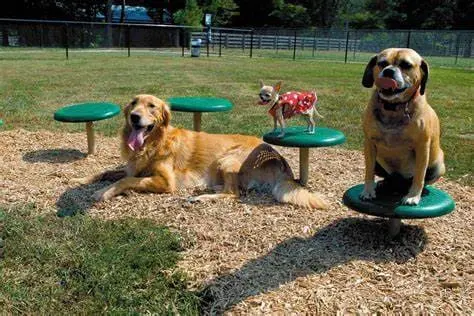
Environmental Impact of Dogs
Dogs can have both positive and negative environmental impacts:
- Positive Impacts: Dogs can encourage outdoor activity and connection with nature, fostering appreciation for the environment. Properly trained dogs can assist in wildlife detection or conservation efforts.
- Negative Impacts: Waste disposal, water consumption, and the carbon footprint associated with dog food production are some environmental concerns related to dog ownership.
Minimizing Dog Waste Impact
Dog waste management is a crucial aspect of responsible dog ownership and environmental protection:
- Always Carry Waste Bags: Make picking up after your dog a routine practice by always carrying waste disposal bags on walks.
- Dispose of Waste Properly: Never leave dog waste behind. Dispose of it in designated waste bins or compost it in a dog-waste specific composting system.
- Parasite Prevention: Regular parasite prevention medication reduces the risk of parasites in dog waste, minimizing potential environmental contamination.
Dog Waste Disposal Options
Here are some resources for finding dog waste disposal options in North Dakota:
- Local Parks and Recreation Department: Many parks have designated dog waste disposal stations with bins and waste bags.
- Pet Stores: Pet stores often sell various types of dog waste disposal bags, including eco-friendly options.
- Online Retailers: Several online retailers offer biodegradable and compostable dog waste bags.
Water Conservation and Dog Ownership
Dogs require fresh water daily. Here’s how to promote water conservation:
- Right-Sized Water Bowl: Provide a water bowl appropriate for your dog’s size to avoid overfilling and unnecessary waste.
- Pick Up Spills: Promptly pick up spilled water to prevent excessive water usage.
- Consider Water-Saving Features: Some dog water bowls have features that minimize spills or encourage slower drinking, reducing water waste.
The Environmental Impact of Dog Food Production
The environmental impact of dog food production is a growing concern. Here are some ways to make eco-conscious choices:
- Sustainable Dog Food Brands: Research dog food brands committed to sustainable practices, such as using ethically sourced ingredients or minimizing packaging waste.
- Supporting Local Food Production: Consider locally produced dog food brands that might have a lower carbon footprint from transportation.
- Portion Control: Avoid overfeeding your dog to reduce food waste and the environmental impact associated with food production.
Responsible Dog Ownership for Environmental Impact
While specific dog environmental impact laws might not exist in North Dakota, responsible ownership practices make a significant difference:
- Eco-Friendly Dog Supplies: Choose eco-friendly dog toys made from recycled materials, and consider using biodegradable waste disposal bags.
- Travel Considerations: Carpool or utilize fuel-efficient transportation options when traveling with your dog.
- Spaying and Neutering: Spaying and neutering your dog helps prevent unwanted litters, reducing the overall environmental impact of dog ownership.
Community Initiatives for Dog Owners
Several community initiatives can support eco-conscious dog ownership in North Dakota:
- Dog Waste Composting Programs: Some communities might offer dog waste composting programs that convert waste into usable fertilizer.
- Educational Programs: Local animal shelters or veterinary clinics might offer educational programs on responsible dog ownership and environmental considerations.
- Volunteer Opportunities: Consider volunteering for park clean-up events or initiatives focused on reducing dog waste pollution in your community.
The Benefits of Eco-Conscious Dog Ownership
Being an eco-conscious dog owner offers numerous benefits:
- Environmental Protection: Responsible dog ownership practices contribute to a cleaner and healthier environment for everyone.
- Cost Savings: Waste management practices like picking up after your dog and avoiding overfeeding can lead to cost savings.
- Stronger Bond with Your Dog: Engaging in outdoor activities with your dog and caring for the environment together can strengthen the bond you share.
Dog Behavioural Training Laws in North Dakota
North Dakota, known for its wide-open spaces and love for animals, recognizes the importance of well-trained canine companions. While there aren’t specific state-wide laws mandating dog training, a network of municipal ordinances and responsible ownership practices empowers dog owners to ensure their furry friends are well-behaved and integrated members of society. This section delves into the legalities surrounding dog training in North Dakota, providing guidance for creating a happy and harmonious relationship with your dog.
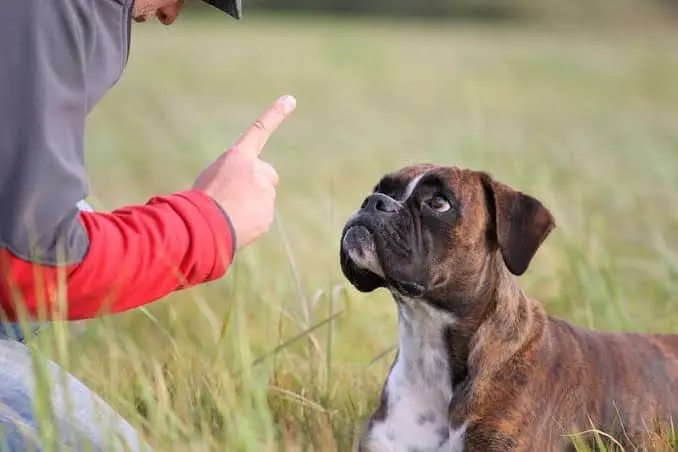
Statewide Dog Training Laws
North Dakota doesn’t have a blanket law requiring dog training for all situations. However, some regulations exist at the municipal level to address specific behavioral concerns.
Considerations for Dog Training
Several factors influence dog training approaches in North Dakota:
- Municipal Leash Laws and Off-Leash Areas: Many municipalities have leash laws requiring dogs to be on leash in public spaces, with designated off-leash areas like dog parks being exceptions. Understanding these regulations helps ensure your dog’s safety and compliance with local ordinances.
- Addressing Nuisance Behaviors: Some municipalities might have ordinances addressing barking dogs or other nuisance behaviors. These ordinances might outline acceptable noise levels or require corrective action from dog owners.
- Positive Reinforcement Training: Positive reinforcement training methods are widely recommended by professional dog trainers and animal behaviorists. This approach rewards desired behaviors, fostering a positive relationship between you and your dog.
Finding Information on Dog Training Laws in Your Area
As dog training laws are established at the municipal level, specifics can vary by location. Here’s how to find information about dog training regulations in your area:
- Municipal Website: Many municipalities have dedicated sections on their websites outlining leash laws, park regulations, and potential nuisance behavior ordinances.
- Local Animal Control Department: Contact your local animal control department. They can provide details on leash laws, nuisance barking ordinances, and any resources available for dog training in your area.
- Signage in Public Areas: Parks and other public spaces often have signage outlining leash use and specific regulations regarding dog behavior.
Responsible Dog Ownership and Training
Following leash laws and addressing nuisance behaviors is crucial, but responsible dog ownership goes beyond legalities:
- Socialization from a Young Age: Socializing your dog from a puppy ensures they feel comfortable interacting with other dogs and people, minimizing potential behavioral issues later in life.
- Basic Obedience Training: Teaching your dog basic commands like “sit,” “stay,” and “come” provides a foundation for good manners and helps ensure your dog’s safety in various situations.
- Addressing Behavioral Concerns: If your dog exhibits behavioral problems like excessive barking, aggression, or separation anxiety, seek professional help from a certified animal behaviorist or qualified dog trainer.
Finding a Reputable Dog Trainer in North Dakota
Here are some resources for finding a reputable dog trainer in North Dakota:
- The Association of Professional Dog Trainers (APDT): The APDT website allows you to search for certified professional dog trainers by location.
- American Kennel Club (AKC) Marketplace: The AKC Marketplace lists dog trainers by location, allowing you to search for trainers in your area.
- Online Reviews: Read online reviews of dog trainers in your area to get a sense of their training methods, experience, and client satisfaction.
- Word-of-Mouth Recommendations: Ask friends, family, or other dog owners for recommendations on reputable dog trainers in your area.
Benefits of Professional Dog Training
While dog training isn’t mandated by law in North Dakota, professional trainers offer numerous benefits:
- Customized Training Plans: Trainers can develop personalized training plans that address your dog’s specific needs and behavioral challenges.
- Effective Training Techniques: Professional trainers utilize evidence-based and positive reinforcement methods to achieve lasting results.
- Behavior Modification: Trainers can help address behavioral issues like aggression, anxiety, or destructive chewing, promoting a more peaceful household.
- Strengthening the Bond with Your Dog: Working with a trainer can strengthen the communication and bond you share with your canine companion.
Understanding Breed-Specific Considerations
Some dog breeds might have inherent behavioral tendencies that require specific training approaches:
- Working Dogs: Working dog breeds like Border Collies or German Shepherds might require additional mental and physical stimulation through training activities to prevent boredom-related behaviors.
- Sporting Dogs: Sporting dogs like Retrievers or Pointers might benefit from training focused on retrieving skills or basic obedience for better control in outdoor settings.
Dog Protection and Rescue Laws in North Dakota
North Dakota, known for its vast landscapes and strong sense of community, prioritizes the well-being of animals, including lost, abandoned, and neglected dogs. While there aren’t state-wide laws encompassing all aspects of dog protection and rescue, a network of legal frameworks and dedicated organizations work together to ensure the safety of canine companions. This section delves into the legalities surrounding dog protection and rescue in North Dakota, empowering you to play a role in helping dogs in need.
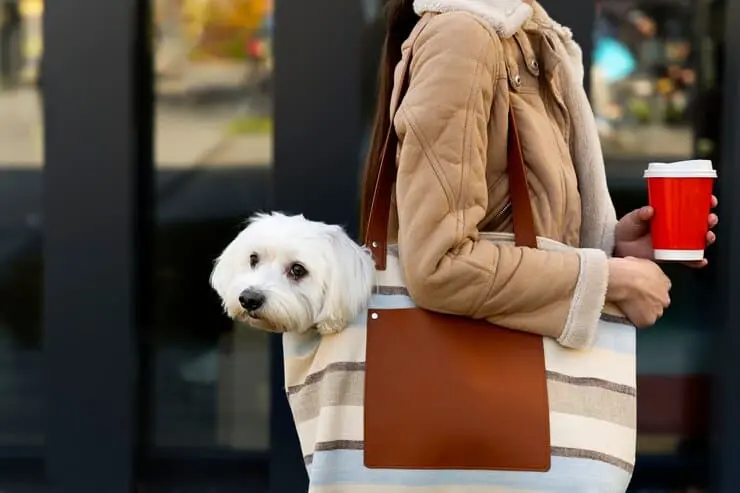
The Absence of Statewide Dog Protection Laws
North Dakota doesn’t have a single, comprehensive law specifically dedicated to dog protection. However, several existing laws and regulations contribute to safeguarding dogs:
- Animal Cruelty Laws: North Dakota has animal cruelty laws that prohibit intentional infliction of pain, suffering, or death on animals. These laws can be enforced against individuals who neglect, abuse, or abandon their dogs.
- Municipal Ordinances: Many municipalities (cities, towns) in North Dakota have ordinances addressing animal control, leash laws, and tethering restrictions. These ordinances can help prevent situations that might put dogs at risk.
- Rabies Vaccination Requirements: Rabies vaccination is crucial for dog health and public safety. Many municipalities have ordinances requiring rabies vaccination for dogs, which indirectly protects them from contracting this deadly disease.
Key Considerations for Dog Protection
Several factors influence dog protection in North Dakota:
- Responsible Pet Ownership: Providing proper care, shelter, food, water, and veterinary attention is fundamental to protecting your dog’s well-being.
- Microchipping: Microchipping your dog significantly increases the chances of a safe reunion if they ever get lost.
- Identification Tags: Always keep well-fitting collars on your dog with identification tags that include your contact information and license number.
- Supervision: Supervise your dog outdoors, especially in unfamiliar environments, to minimize the risk of them getting lost or encountering danger.
Reporting Animal Cruelty
If you suspect a dog is being neglected, abused, or abandoned, it’s crucial to report it:
- Local Animal Control Department: Your first point of contact should be your local animal control department. They have the authority to investigate and take appropriate action.
- Law Enforcement: In cases of severe animal cruelty, you might need to involve law enforcement.
- Humane Societies and Animal Rescue Organizations: Humane societies and animal rescue organizations often have resources and expertise to handle animal cruelty cases.
Finding Animal Shelters and Rescue Organizations
North Dakota has a network of animal shelters and rescue organizations dedicated to caring for lost, abandoned, and surrendered dogs. Here are some resources for finding them:
- The Shelter Pet Project: This national database allows you to search for adoptable pets in your area, including those in North Dakota shelters and rescues
- North Dakota Humane Society: The North Dakota Humane Society is a statewide organization with a network of shelters and resources
- Local Animal Shelters and Rescues: Many local communities in North Dakota have their own animal shelters or rescue organizations. Search online or contact your local animal control department for details.
Dog Adoption Laws and Procedures
If you’re considering adopting a dog from a shelter or rescue organization in North Dakota, here’s what to expect:
- Adoption Process: The adoption process typically involves an application, reference checks, a home visit, and an adoption fee. Shelters and rescues might have additional requirements.
- Spay/Neuter Requirements: Many shelters and rescues require adopted dogs to be spayed or neutered to help control pet overpopulation.
- Licensing Requirements: Most municipalities in North Dakota require dog owners to obtain a license for their dog. Contact your local animal control department for details.
Benefits of Dog Adoption
Adopting a dog from a shelter or rescue offers numerous benefits:
- Giving a Dog a Second Chance: You provide a loving home to a dog in need.
- Variety of Breeds: Shelters and rescues have dogs of all ages, breeds, and mixes, increasing your chances of finding the perfect companion.
- Reduced Pet Overpopulation: Adoption helps reduce the strain on animal shelters and the number of homeless dogs.
Dog Entertainment and Work Laws in North Dakota
North Dakota, known for its wide-open spaces and hardworking spirit, recognizes the multifaceted role dogs can play in our lives. While there aren’t specific state-wide laws dictating all aspects of dog entertainment and work, a combination of regulations and responsible ownership practices empowers dog owners to engage their furry companions in enriching activities, both for fun and function. This section delves into the legalities surrounding dog entertainment and work in North Dakota, empowering you to explore safe and fulfilling experiences with your canine friend.

Dog Entertainment
Dogs thrive on physical and mental stimulation. Here’s how to ensure your dog has enriching entertainment:
- Dog Parks and Off-Leash Areas: Many municipalities in North Dakota have designated dog parks where dogs can run freely, socialize with other dogs, and play fetch. Always check leash laws and park regulations before visiting.
- Outdoor Activities: North Dakota’s vast landscapes offer opportunities for dog-friendly adventures like hiking, swimming (with proper supervision), or exploring dog-friendly trails.
- Interactive Toys and Games: Engage your dog with puzzle toys, fetch games, or scent work activities to stimulate their minds and bodies.
- Doggy Daycare: Consider doggy daycare for socialization and playtime if you work long hours. Check licensing and safety protocols of daycare facilities before enrolling your dog.
Finding Dog-Friendly Activities and Locations
Here are some resources for finding dog-friendly activities and locations in North Dakota:
- BringFido Website: This website allows you to search for dog-friendly parks, restaurants, and businesses in your area
- Local Parks and Recreation Department: Many local parks and recreation departments maintain lists of dog-friendly parks and trails.
- Online Reviews and Forums: Look for online reviews and forums discussing dog-friendly activities in your area.
- Word-of-Mouth Recommendations: Ask other dog owners for recommendations on dog-friendly parks, trails, or businesses.
The Importance of Responsible Dog Entertainment
While dog parks and off-leash areas offer fun, responsible ownership is crucial:
- Vaccinations and Licensing: Ensure your dog is up-to-date on vaccinations and has a valid dog license before visiting dog parks or other public spaces.
- Socialization and Training: Train your dog on basic obedience commands like “sit,” “stay,” and “come” to ensure they are controllable and respectful around other dogs.
- Cleaning Up Waste: Always pick up after your dog to maintain a clean and pleasant environment for everyone.
- Supervision: Never leave your dog unattended at a dog park or off-leash area.
Exploring Dog Work Opportunities
While there aren’t specific dog work laws in North Dakota, certain jobs might benefit from the unique skills and abilities of canines:
- Search and Rescue: Dogs with exceptional tracking and scent detection skills can be invaluable assets to search and rescue teams.
- Therapy Dogs: Certified therapy dogs can provide emotional support and comfort to people in hospitals, nursing homes, or other settings.
- Livestock Herding: Certain breeds like Border Collies excel at herding livestock, assisting ranchers in managing their herds.
- Detection Dogs: Dogs trained to detect specific scents, like explosives or narcotics, can be valuable partners for law enforcement agencies.
Regulations for Dog Work
Regulations for dog work can vary depending on the specific task and industry. Here’s what to consider:
- Training and Certification: Many dog work positions require specialized training and certification for both the dog and handler.
- Licensing and Permits: Some municipalities or industries might have licensing or permit requirements for working dogs.
- Temperament and Suitability: The dog’s temperament, breed, and physical capabilities must be suitable for the intended work.
Finding Opportunities for Dog Work
Opportunities for dog work might not be readily available, but here are some resources to explore:
- Search and Rescue Organizations: Contact local search and rescue organizations to inquire about volunteer opportunities for dogs with appropriate training.
- Therapy Dog Certification Programs: Organizations like the American Kennel Club (AKC) offer therapy dog certification programs. [invalid URL removed]
- Livestock Associations: Connect with local livestock associations to learn about potential opportunities for herding dogs.
Dog Technology and Innovation Laws in North Dakota
North Dakota, a state known for its agricultural roots and embracing technological advancements, recognizes the potential of innovative solutions for pet care. While there aren’t currently specific state-wide laws regulating all aspects of dog technology and health innovations, a dynamic landscape is emerging. This section delves into the evolving world of dog tech in North Dakota, empowering you to understand the possibilities and navigate responsible use.

The Rise of Dog Technology
Technology is transforming the way we care for our canine companions. Here are some prominent areas of dog tech innovation:
- Wearable Trackers: Smart collars and trackers monitor your dog’s activity levels, sleep patterns, and even location in real-time, providing valuable insights into their well-being.
- Remote Training Devices: Certain electronic training tools allow for remote correction or training reinforcement through vibrations, sounds, or mild electric pulses.
- Automated Pet Feeders and Water Dispensers: These devices provide scheduled feeding and hydration, ensuring your dog receives consistent care even when you’re away.
- Telehealth for Pets: Emerging platforms allow consultations with veterinarians remotely, offering convenience and potentially faster access to care.
- Artificial Intelligence (AI) for Dog Care: AI-powered applications are being developed to analyze dog behavior patterns, detect potential health issues, and offer personalized care recommendations.
Regulatory Landscape for Dog Tech
The legal landscape surrounding dog tech is evolving. Here’s what to consider:
- Limited State-Level Regulations: Currently, North Dakota doesn’t have specific state-wide laws directly regulating dog tech products. However, existing animal cruelty laws might apply in situations of misuse.
- Focus on Responsible Use: The focus leans towards responsible ownership and ensuring dog tech products are used for their intended purposes, promoting your dog’s well-being.
- Federal Regulations: The U.S. Food and Drug Administration (FDA) might have regulations for certain dog tech products, especially those classified as medical devices.
Finding Reputable Dog Tech Products
With the growing market for dog tech, careful selection is crucial. Here are some tips:
- Research Thoroughly: Read reviews, compare features, and understand the science behind the technology before purchasing a dog tech product.
- Prioritize Ethical Brands: Look for companies that prioritize animal welfare and responsible dog ownership practices in their product development and marketing.
- Consult Your Veterinarian: Discuss the potential benefits and drawbacks of specific dog tech products with your veterinarian before incorporating them into your dog’s care routine.
Emerging Laws and Considerations for Dog Health Technology
As dog health technology advances, legal considerations might evolve:
- Data Privacy and Security: As dog tech products collect data, ensuring data privacy and security for your dog’s information becomes increasingly important.
- Ethical Use of Telehealth: While telehealth consultations offer convenience, regulations might emerge to ensure these consultations complement, not replace, in-person veterinary checkups.
- Transparency and Accuracy of AI-Powered Applications: As AI-powered tools become more prevalent, ensuring transparency in their algorithms and accuracy of their recommendations will be crucial.
The Future of Dog Technology in North Dakota
North Dakota, with its openness to innovation, is likely to see continued growth in the dog tech sector. Here’s what you can expect:
- Focus on User-Friendliness and Accessibility: Dog tech products will likely become more user-friendly and accessible to a broader range of dog owners.
- Integration with Existing Technologies: Expect dog tech to integrate with existing smart home technologies, creating a more holistic pet care ecosystem.
- Emphasis on Veterinary Oversight: Veterinarians will likely play a vital role in advising on the appropriate use of dog tech products and ensuring they complement traditional veterinary care.
Responsible Use of Dog Technology
While dog technology offers exciting possibilities, responsible use is paramount:
- Prioritize Dog Welfare: Never prioritize convenience or novelty over your dog’s well-being. Technology should enhance, not replace, responsible pet ownership.
- Maintain Human-Animal Bond: Don’t rely solely on technology for pet care. Maintain a strong bond with your dog through interactive play, training, and affection.
- Be Mindful of Over-Reliance: Technology shouldn’t replace your attentiveness to your dog’s health and behavior.
Human Coexistence Laws in North Dakota
North Dakota, known for its strong sense of community and love for the outdoors, recognizes the enriching bond between humans and dogs. While there aren’t specific state-wide laws solely focused on promoting cohabitation and bonding, a combination of existing regulations and community initiatives fosters a supportive environment for human-canine coexistence. This section delves into the legal framework in North Dakota that indirectly promotes responsible dog ownership and strong human-dog relationships.
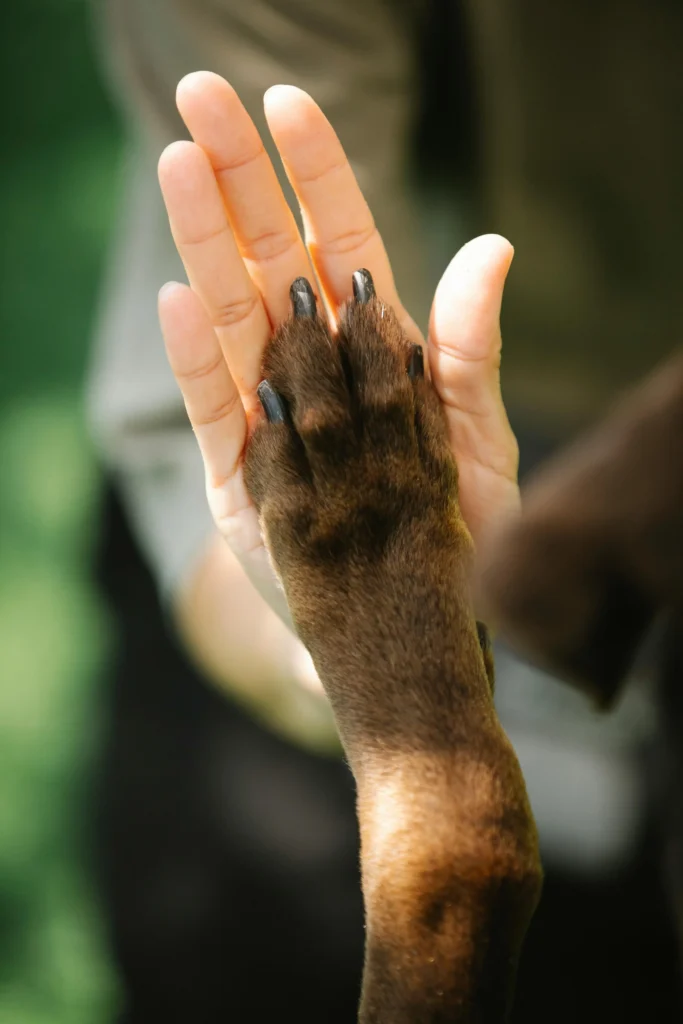
The Absence of Direct Cohabitation Laws
North Dakota doesn’t have a single law dictating dog ownership or human-canine cohabitation. However, several existing laws and regulations indirectly contribute to a positive environment for human-dog relationships:
- Animal Cruelty Laws: North Dakota has animal cruelty laws that prohibit intentional infliction of pain, suffering, or death on animals. This ensures dogs receive basic care and humane treatment, promoting a foundation for a positive relationship with their owners.
- Municipal Leash Laws and Off-Leash Areas: Many municipalities have leash laws requiring dogs to be on leash in public spaces, with designated off-leash areas like dog parks being exceptions. These regulations allow for controlled walks and socialization opportunities, strengthening the bond between dog and owner.
- Public Health and Safety Laws: Laws requiring vaccinations and responsible waste management contribute to a healthier environment for both humans and dogs, promoting safe and enjoyable cohabitation.
Key Considerations for Human-Canine Cohabitation
Several factors influence successful human-canine cohabitation in North Dakota:
- Responsible Dog Ownership: Providing proper care, shelter, food, water, veterinary attention, and training is crucial for building trust and a strong bond with your dog.
- Meeting Breed Needs: Understanding the specific needs of your dog’s breed, whether it’s exercise requirements, grooming needs, or mental stimulation, helps ensure their well-being and happiness, contributing to a positive cohabitation experience.
- Positive Reinforcement Training: Positive reinforcement training methods based on rewards and praise foster a strong communication link and build trust between you and your dog.
- Socialization from a Young Age: Socializing your dog from a puppy ensures they feel comfortable interacting with other dogs and people, promoting a well-adjusted canine companion for your life.
Community Initiatives for Human-Canine Coexistence
Beyond legal frameworks, numerous community initiatives in North Dakota support human-canine bonding:
- Dog Parks and Off-Leash Areas: Many communities provide designated dog parks where dogs can run freely, socialize with other dogs, and strengthen their bond with their owners.
- Dog-Friendly Events and Activities: Communities might host dog-friendly events or activities like walks, hikes, or social gatherings, fostering connections between humans and their canine companions.
- Dog Training Classes: Dog training classes offered by professional trainers or community centers equip owners with the skills to build a strong and positive relationship with their dogs.
- Therapy Dog Programs: Therapy dog programs connect certified therapy dogs with people in hospitals, nursing homes, or other settings, showcasing the positive impact dogs can have on human well-being.
Benefits of Strong Human-Canine Bonds
Building a strong bond with your dog offers numerous benefits for both you and your furry friend:
- Improved Physical Health: Regular walks and playtime with your dog promote physical activity for both of you.
- Enhanced Mental Well-Being: Studies suggest owning a dog can reduce stress, anxiety, and loneliness, while providing companionship and emotional support.
- Increased Socialization: Owning a dog can lead to more social interaction with other dog owners at dog parks or during walks.
- Greater Life Satisfaction: The unconditional love and loyalty of a dog can significantly enhance your overall sense of well-being and life satisfaction.
Legal Considerations
While there aren’t specific cohabitation laws, responsible dog ownership is essential:
- Licensing: Most municipalities in North Dakota require dog owners to obtain a license for their dog. Contact your local animal control department for details.
- Vaccinations: Vaccinations are crucial for protecting your dog’s health and public safety. Many municipalities require rabies vaccination for dogs.
- Waste Management: Always clean up after your dog to maintain a clean and pleasant environment for everyone.
- Nuisance Barking: Be mindful of excessive barking that might disturb neighbors. Some municipalities have ordinances addressing nuisance barking.
Other Relevant Dog Laws in North Dakota
Canine Good Citizen (CGC) Programs and Legal Benefits
- Canine Good Citizen Programs: The American Kennel Club (AKC) offers Canine Good Citizen (CGC) programs that certify well-mannered and trained dogs. While not mandated by law, CGC certification can demonstrate responsible ownership and potentially offer benefits:
- Reduced Renter’s Insurance Rates: Some renters’ insurance companies might offer discounts for dogs with CGC certification.
- Entrance into Dog-Friendly Housing: Landlords might be more open to renting to tenants with CGC-certified dogs.
- Participation in Dog-Related Events: Certain dog-friendly events or activities might require CGC certification.
- Finding CGC Programs: Local kennel clubs, dog training facilities, or animal shelters might offer CGC programs.
Dog Insurance and Coverage Laws
- Dog Insurance: Dog insurance isn’t mandatory in North Dakota, but it’s a wise investment. Consider coverage options that fit your needs, such as:
- Accident and Illness Coverage: Helps cover veterinary costs associated with accidents or illnesses.
- Liability Coverage: Provides protection in case your dog injures someone or damages property.
- Understanding Coverage and Exclusions: Read insurance policies carefully to understand covered expenses and exclusions. Some policies might exclude specific breeds or pre-existing conditions.
Dogs in Hot Cars and Animal Endangerment
- Animal Cruelty Laws: North Dakota’s animal cruelty laws prohibit leaving an animal in a situation that could endanger its health or safety. Leaving a dog in a hot car can be considered animal cruelty.
- Heatstroke Risks: Dogs are susceptible to heatstroke in hot cars, even with windows cracked. Leaving your dog unattended in a hot car can be fatal.
- Alternatives to Leaving Your Dog in a Hot Car: If you can’t take your dog inside, leave them at home with proper ventilation and access to water. Consider using pet boarding facilities or pet sitters if necessary.
Legal Aspects of Dog Parks and Shared Spaces
- Leash Laws and Off-Leash Areas: Many municipalities in North Dakota have leash laws requiring dogs to be on leash in public spaces. Designated off-leash areas like dog parks offer opportunities for controlled socialization.
- Dog Park Rules and Etiquette: Most dog parks have rules regarding proper behavior, waste management, and ensuring your dog is up-to-date on vaccinations. Be a responsible dog owner and respect other park users.
- Shared Responsibility: Dog park use requires shared responsibility. Be mindful of your dog’s behavior and keep them under control to ensure everyone enjoys a safe and pleasant experience.
Dog-Related Property Damage and Homeowner’s Insurance
- Liability Coverage: Most homeowner’s insurance policies include liability coverage for dog bites or property damage caused by your dog.
- Understanding Policy Limits: Review your homeowner’s insurance policy to understand coverage limits for dog-related incidents. Higher liability coverage might be necessary depending on your breed or risk factors.
- Responsible Ownership: Proper training and socialization can help minimize the risk of dog-related property damage.
Service and Working Dog Laws in Employment and Public Access
- Americans with Disabilities Act (ADA): The ADA protects the rights of individuals with disabilities to have service animals in public spaces and certain housing situations. Service animals are specially trained to perform tasks to assist people with disabilities.
- Emotional Support Animals (ESAs): ESAs are not protected under the ADA but might be allowed in certain housing situations with proper documentation. ESAs provide emotional support but are not trained to perform specific tasks for disabilities.
- North Dakota Service Dog Laws: North Dakota doesn’t have specific state-wide laws regarding service dogs. However, service dogs are generally protected under the ADA.
- Verification of Service Animals: Legitimate service dogs will likely have identification vests or patches and be well-behaved in public settings. Businesses cannot request documentation for service animals, but they can ask if the animal is trained to perform a specific task for a disability.
North Dakota, while lacking a single dog law, fosters a canine-friendly environment through a network of municipal ordinances and responsible ownership practices. Understanding leash laws, training requirements, and your role in preventing cruelty is crucial. By following these guidelines, dog owners ensure the safety and well-being of their furry companions, while contributing to a more harmonious relationship between humans and dogs in North Dakota. Responsible dog ownership is a win-win for everyone.
FAQs
Can I bring my dog to restaurants in North Dakota?
North Dakota doesn’t have a statewide law regarding dogs in restaurants. It depends on the individual establishment. Look for restaurants with signs indicating they are dog-friendly, or call them beforehand to inquire about their policy.
Are there any breed restrictions in North Dakota?
North Dakota doesn’t have a statewide ban on specific dog breeds. However, some municipalities might have breed restrictions in place. Always check with your local animal control department to see if any breed restrictions apply in your area.
What to do if I find a lost dog in North Dakota?
If you find a lost dog in North Dakota, the first step is to check for an identification tag or microchip. Contact information for the owner might be readily available. You can also take the dog to a veterinarian or animal shelter to see if they have a microchip scanner. Additionally, contact your local animal control department and report the lost dog.
What are the laws regarding traveling with my dog in North Dakota?
There are no specific state-wide laws regarding traveling with your dog within North Dakota. However, some public transportation options might have restrictions on pet travel. Always check with the specific carrier (bus line, airline) before traveling with your dog. Additionally, some national parks or recreation areas might have restrictions
Are there any resources available to help low-income pet owners in North Dakota?
Several resources can assist low-income pet owners in North Dakota. These might include:
Low-cost spay and neuter clinics: Spaying or neutering your dog is crucial for responsible pet ownership. These clinics offer the procedure at a reduced cost.
Pet food banks: These organizations provide pet food assistance to low-income families who struggle to afford food for their pets.
Veterinary financial assistance programs: Some organizations offer financial assistance to help low-income pet owners afford veterinary care for their dogs.

